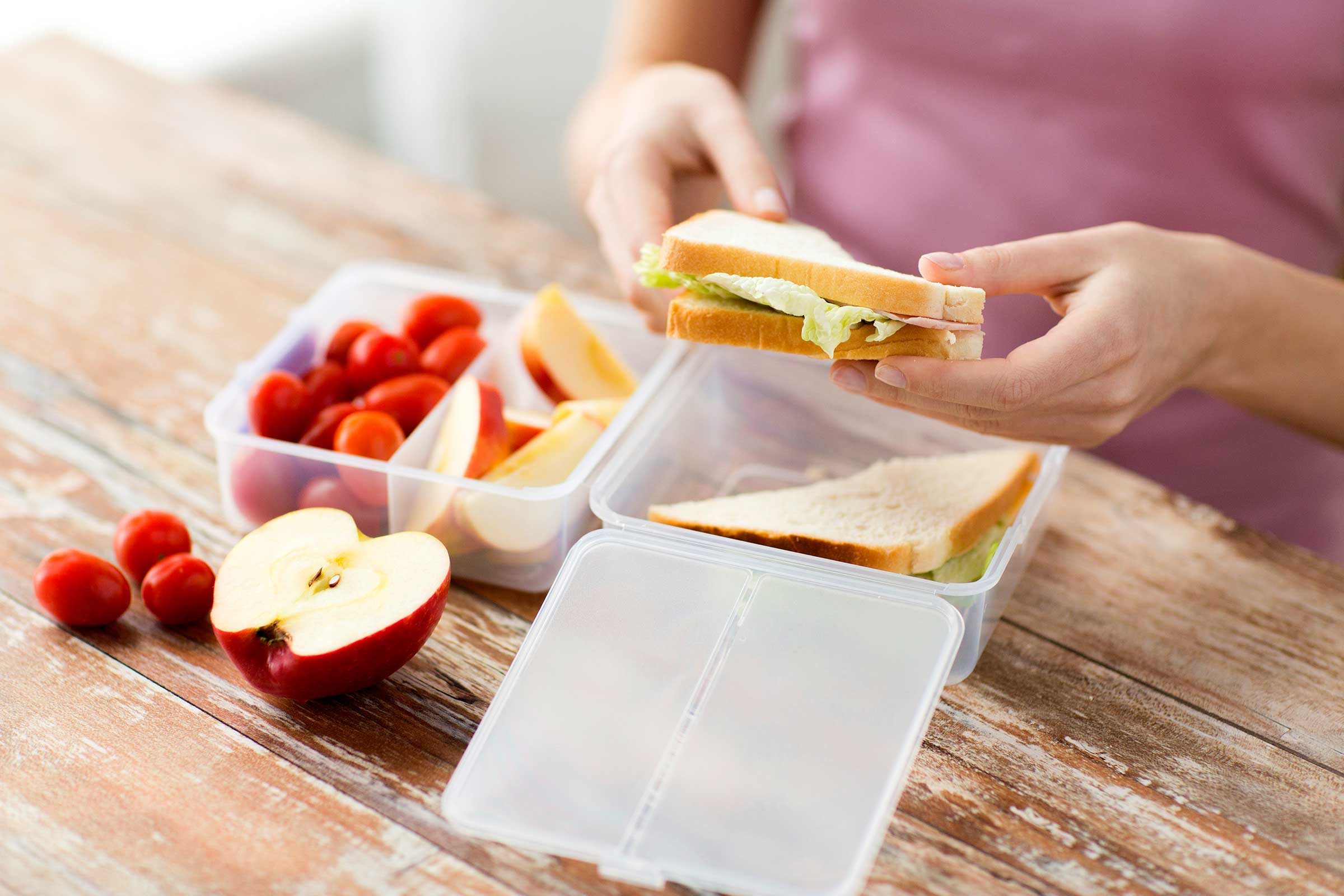
Eat your meals at the same time every day
When your body doesn’t know what to expect, it can get stressed out. According to oncologist David B. Agus, MD, in his book The End of Illness, even simply eating lunch an hour later than usual can spike levels of the stress hormone cortisol. Michelle Miller, clinical nutritionist at Physio Logic NYC in Brooklyn, adds that eating at consistent times is also important for your body’s circadian rhythms. “When you eat your meals around the same time every day, your body develops reliable and consistent signals,” she says. “Hormones such as leptin and ghrelin help to modulate energy metabolism and appetite and are kept in balance with a more regular eating schedule.” Don’t miss these other healthy-eating tips that just might change your life.

Pack your suitcase on your bed
Don’t fill your luggage on the floor. Leaning down puts stress on your back, notes spine surgeon Gerard J. Girasole, MD, author of The 7-Minute Back Pain Solution. Instead, pack your luggage atop a towel-draped bed or table so you’re not bending over as much, thereby avoiding one of the everyday habits that give you back pain.

Read for a longer life
Don’t feel guilty for ignoring the world and curling up with a good book: It could actually increase your longevity. A long-term study of more than 3,600 people over the age of 50, published in Social Science & Medicine in 2016, found that book readers had a significant “survival advantage” over non-book readers, including those who instead read newspapers or magazines. As little as 30 minutes a day could be beneficial, with those who read more than 3.5 hours a week living nearly two years longer than non-book readers. Researchers theorize that this may be due to the “cognitive engagement” and “slow, immersive process” of reading books as opposed to more mindless material or, of course, nothing at all.

Curse pain goodbye
You’ll tolerate pain better if you let loose with some profanity while you’re experiencing it, according to a 2009 study published in NeuroReport. U.K. researchers found that participants who repeated a swear word could keep their hands in freezing water longer than those who repeated a non-curse word. One caveat: A 2011 study in the Journal of Pain found that this trick to reduce pain works better if you’re not a regular potty mouth. Here are some more unusual things doctors do to relieve pain.
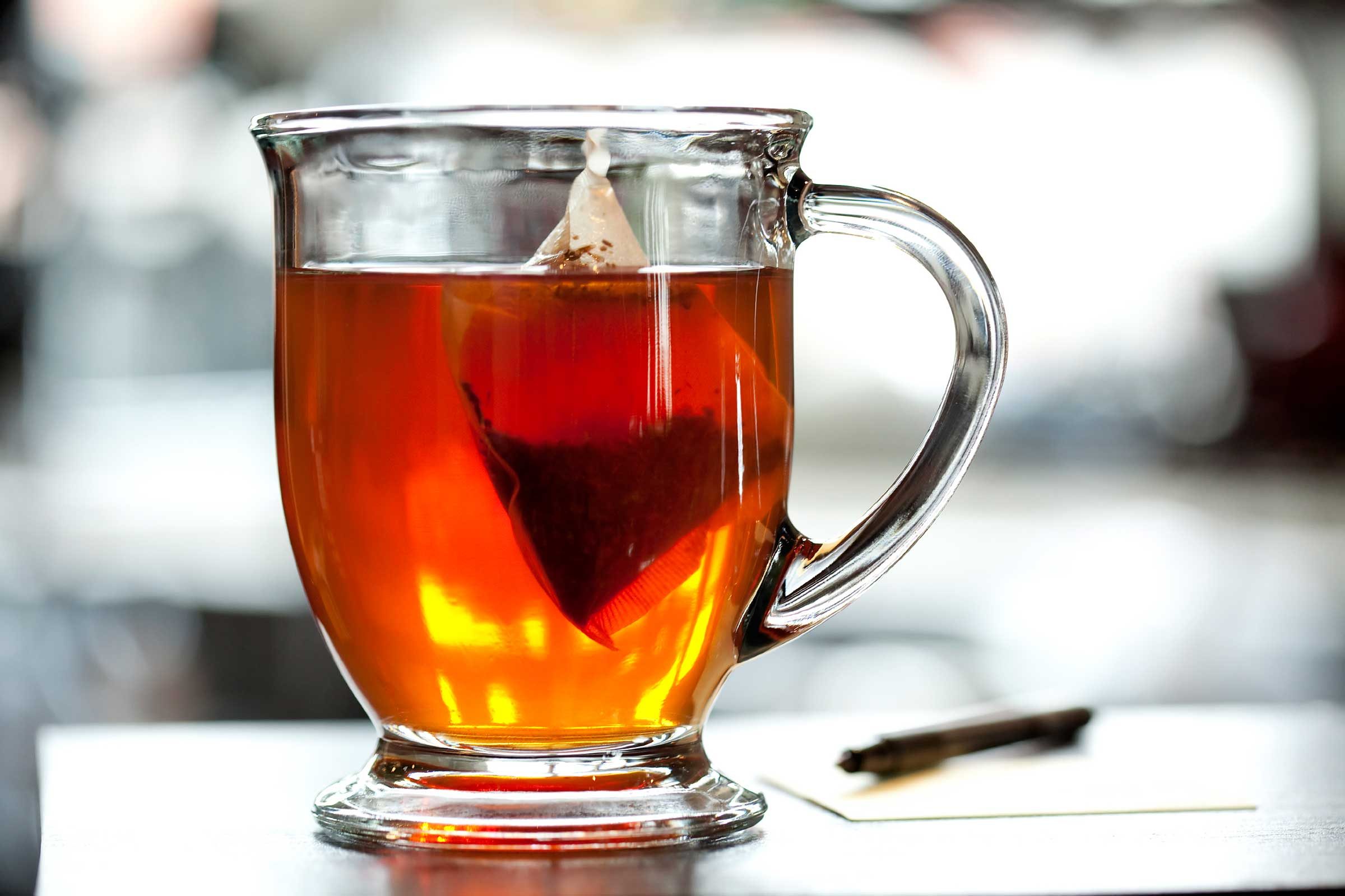
Drink white or green tea for more antioxidants
Research links tea to lower risks of heart attack, certain cancers, type 2 diabetes, and Parkinson’s disease. For the most antioxidant power, drink white or green tea instead of black tea, according to a study published in the Journal of Food Science in 2015, and adjust your steeping time depending on what you’re drinking. For example, more antioxidants were shown to be released in black tea when steeped in hot water for a short amount of time, while green tea was most powerful when steeped in cold water for two hours.

Stand up (now!)
When you sit for long stretches, triglycerides increase, good cholesterol drops, and your body becomes inflamed, according to a study published in Lipids in Health and Disease in 2015. That can create a perfect storm for a heart attack or stroke. Luckily, sitting too long is one of the stroke risk factors you can actually control.

Downsize your meat portion
Is meat good or bad for you? While the debate rages on, steak lovers can indulge with less guilt simply by eating a more reasonable helping. According to the American Heart Association, the perfect meat portion is three ounces (about the size of a deck of cards), which is a lot smaller than most restaurant portions. This simple tweak can help prevent these things that happen to your body when you eat too much meat.

Cook one more meal per week at home
Research published in the journal Public Health Nutrition in 2015 found that people who cooked at home five times a week were nearly 50 percent more likely to be alive after 10 years than those who steered clear of the kitchen. The benefits aren’t just from eating healthier but also from grocery shopping, following a recipe, and preparing food, which help your brain develop new connections. Swap out one night of takeout for an easy go-to recipe, then gradually add more recipes/meals to your repertoire over time.
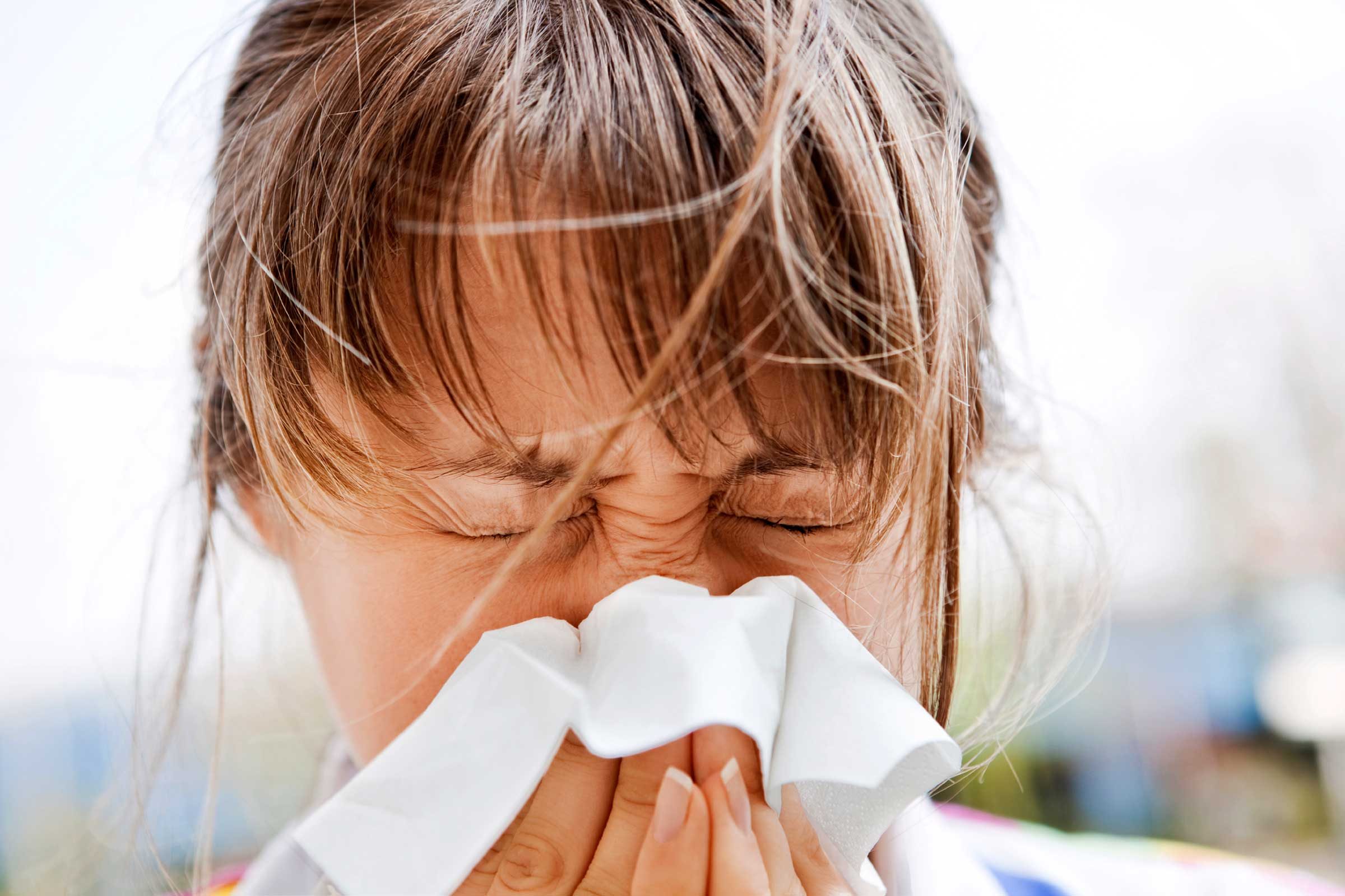
Steer clear of coughers and sneezers
“Most germs are spread by droplets,” says Michael Pentella, PhD, clinical associate professor at the University of Iowa College of Public Health. “Talking and sneezing produce droplets that fall within a six-foot range.” During cold and flu season, he tries to stay three feet away from people who are visibly ill. Check out these other ways doctors avoid catching colds and the flu.
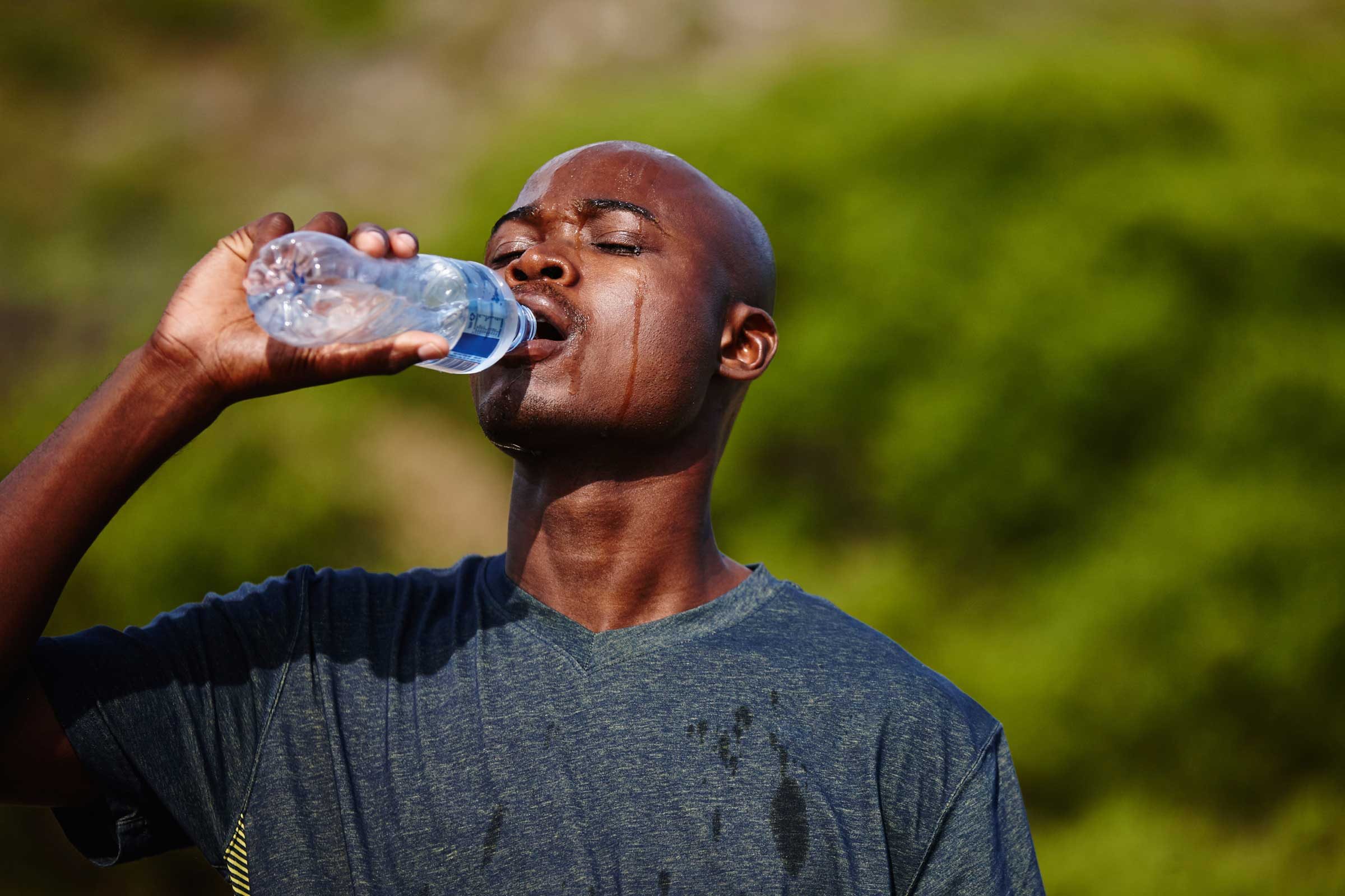
Drink this before driving
Mild dehydration may increase driver inattention and compromise safety as much as alcohol does, according to research published in the journal Physiology and Behaviour in 2015. For the study, Loughborough University scientists tracked men during two simulated driving tests. In one test, the subjects drank large amounts of water the day before and the day of the test. In another, they had limited water both days. When dehydrated, the men made 101 minor driving errors (comparable to a blood-alcohol level of 0.08 percent) but only 47 errors when hydrated.
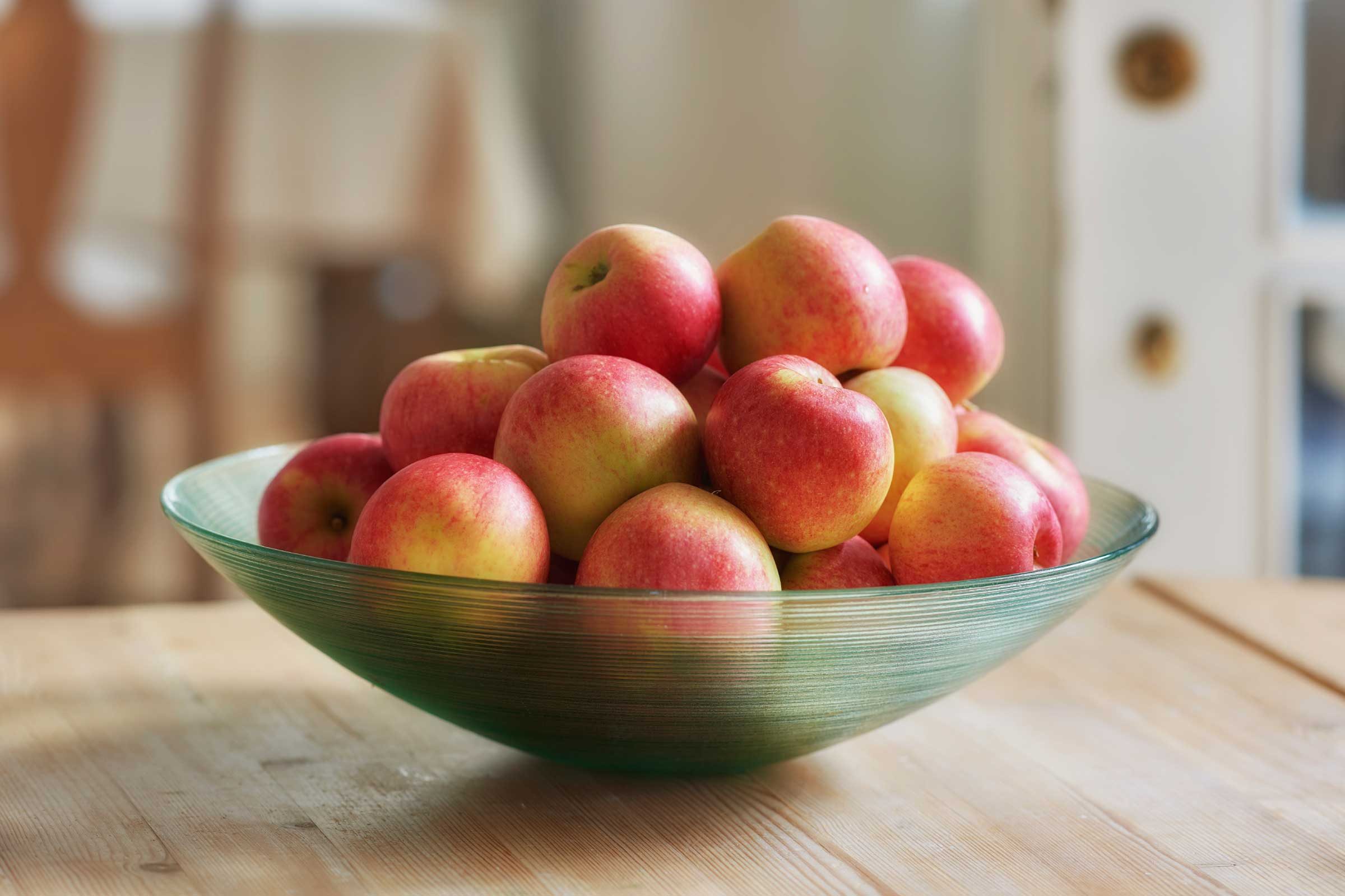
Snack on an apple a day for healthier arteries
There may be something to that “apple a day” adage: One study showed that older women who started eating an apple a day saw a 23 percent drop in their “bad” LDL cholesterol and a 4 percent increase in their HDL (“good”) cholesterol, while other studies have suggested that apples can inhibit breast-cancer growth. And according to yet another study published in JAMA Internal Medicine in 2015, while an apple a day might not cause you to see your doctor less frequently, it may lead you to use fewer prescription medications. Check out these 50 foods that are good for your heart.

Ask, “Doc, are your hands clean?”
Handwashing is one of the major ways to control infections in health-care settings, but believe it or not, doctors don’t always do it before seeing patients. In fact, according to one study published in Infection Control & Hospital Epidemiology in 2013, one third of patients surveyed at a medical center said they didn’t see their doctors wash their hands—and nearly two thirds of those patients didn’t challenge them about it. Too shy to speak up? Say something like, “I’m embarrassed to ask you this, but would you mind cleaning your hands before you begin?”
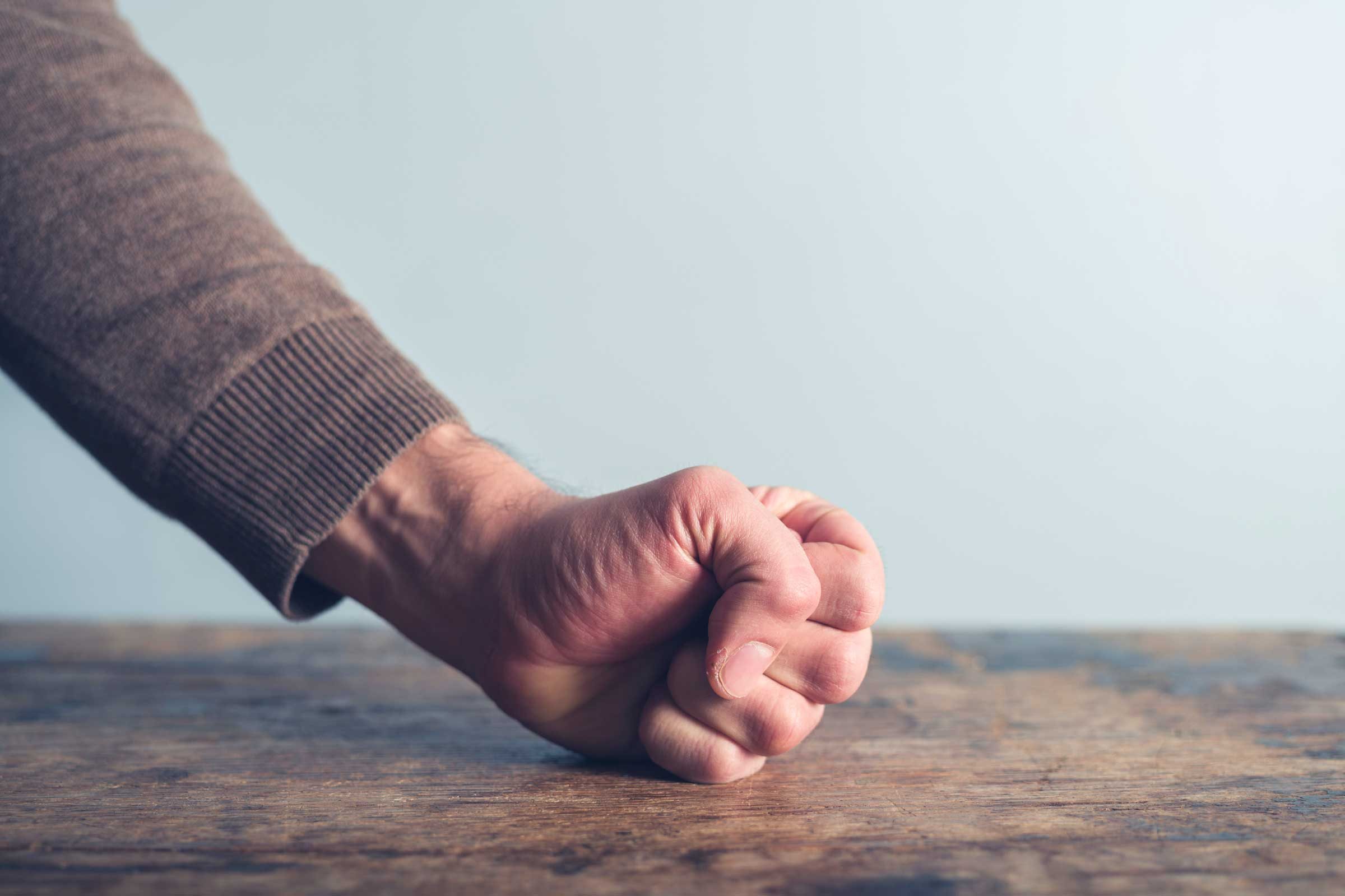
Make your left hand a fist
The next time you’re facing a stressful situation that requires physical accuracy (such as walking on a treacherous path), squeeze your left hand into a fist. This simple trick helped athletes keep their cool during a game’s high-pressure moments, according to a study published the Journal of Experimental Psychology in 2013. Choking under pressure seems to be caused by brain activity in the non-dominant hemisphere, and distracting that side of the brain (by clenching your left hand if you’re right-handed) can stop the overthinking that leads to error.

Blow your nose the right way
Betcha didn’t know there’s a good and a bad way to get rid of that mucus-y stuffiness. Turns out, honking both nostrils at the same time can create too much pressure in your nasal cavities and can push mucus deeper into your sinuses, spreading the infection and making you feel worse, according to Henry Danko, MD, of Rush University Medical Center in Chicago. Instead, blow slowly, one nostril at a time. In addition to blowing your nose wrong, you’re probably also making these other 32 everyday mistakes that raise your risk of catching a cold.

Zone out to YouTube
It’s OK to get sucked into a funny cat videos or adorable animal moments caught on camera. In fact, in a survey of nearly 7,000 people, researchers from the University of Indiana Media School found that watching cat videos actually boosted people’s energy and positive emotions. They also had fewer negative emotions afterward. So don’t feel guilty about about having a daily online dose of kitty procrastination—it’s good for you!
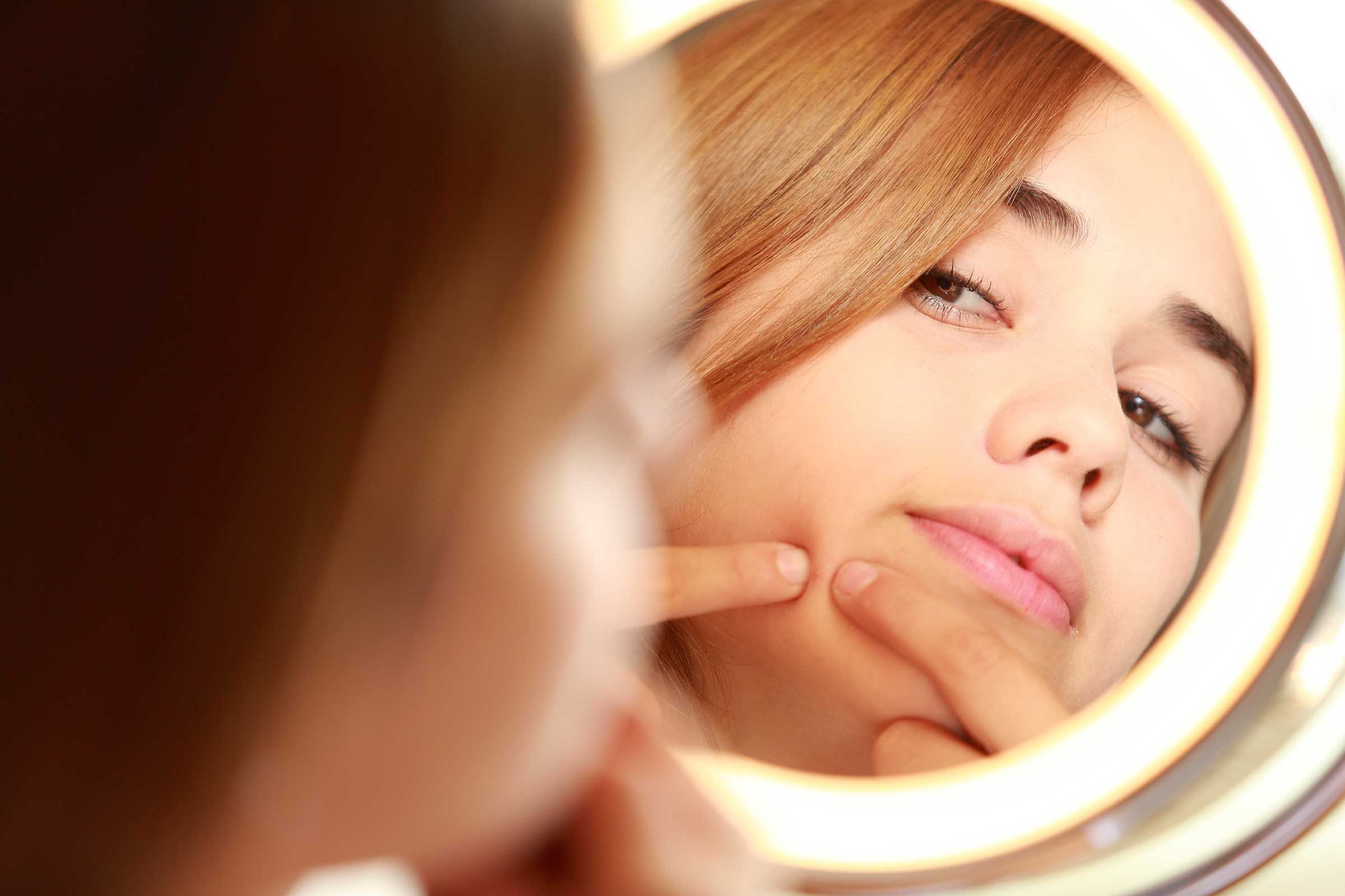
Get rid of your magnifying mirror
It makes you want to pick and squeeze your pores, pimples, and other imperfections, which can make bacterial infection and scarring worse. When your skin looks worse, you can feel worse, according to research published in Body & Society in 2018. Don’t miss these other everyday habits that are wrecking your skin.
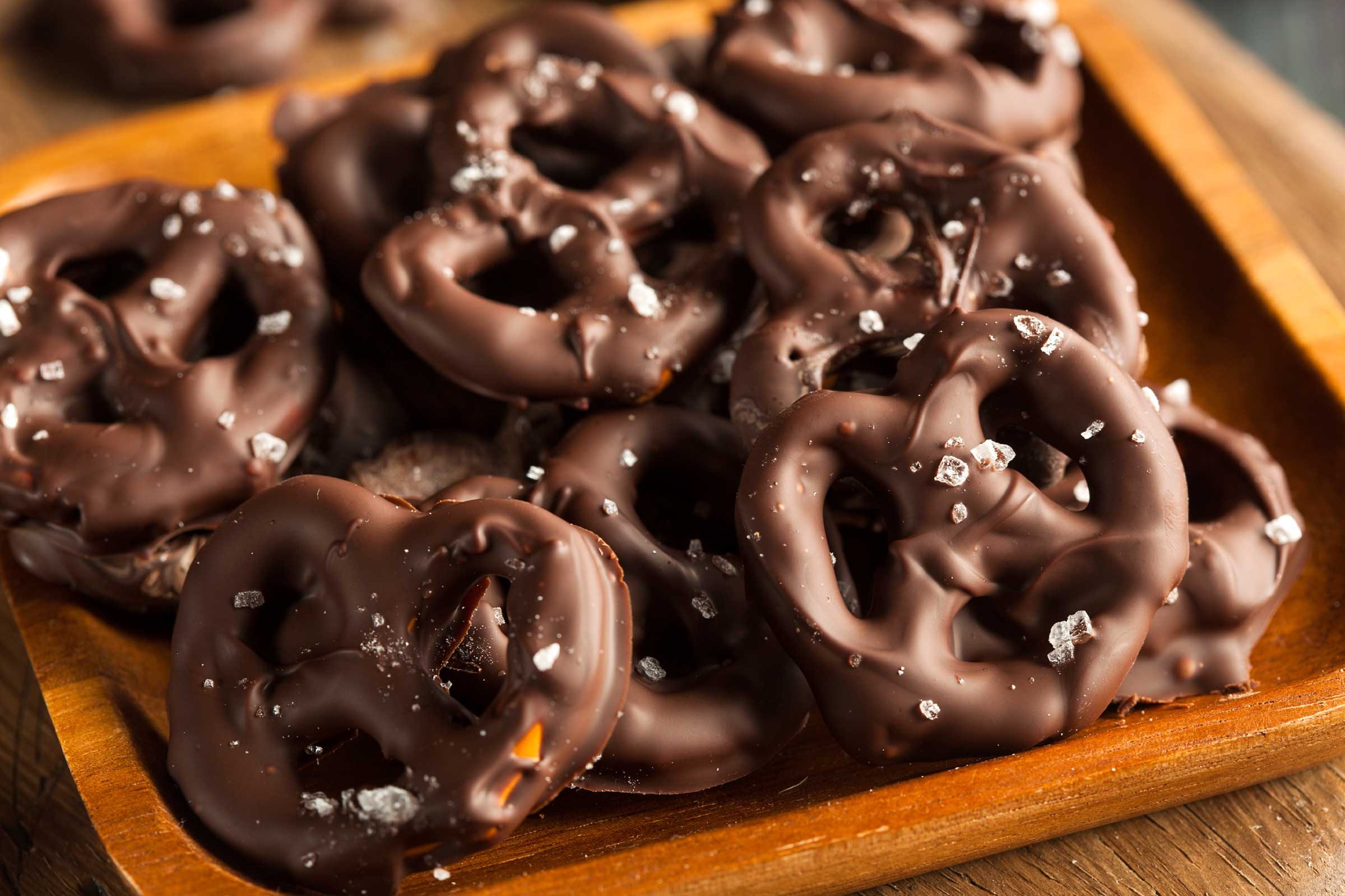
Try this craving-fighting trick
Jonesing for chocolate-covered pretzels? Have one or two—then wait 15 minutes to see if you really want more. That’s the lesson from Cornell research, published in the journal Food Quality and Preference in 2013, garnered from 100 adults who ate either a small or large serving of the same snack. While the group who ate the bigger portion consumed about 77 percent more calories on average, both groups reported equally fewer cravings 15 minutes later—a sign that it’s the pleasure of eating, not the portion size, that satisfies. Here are some simple but effective portion-control tricks to help you lose weight.
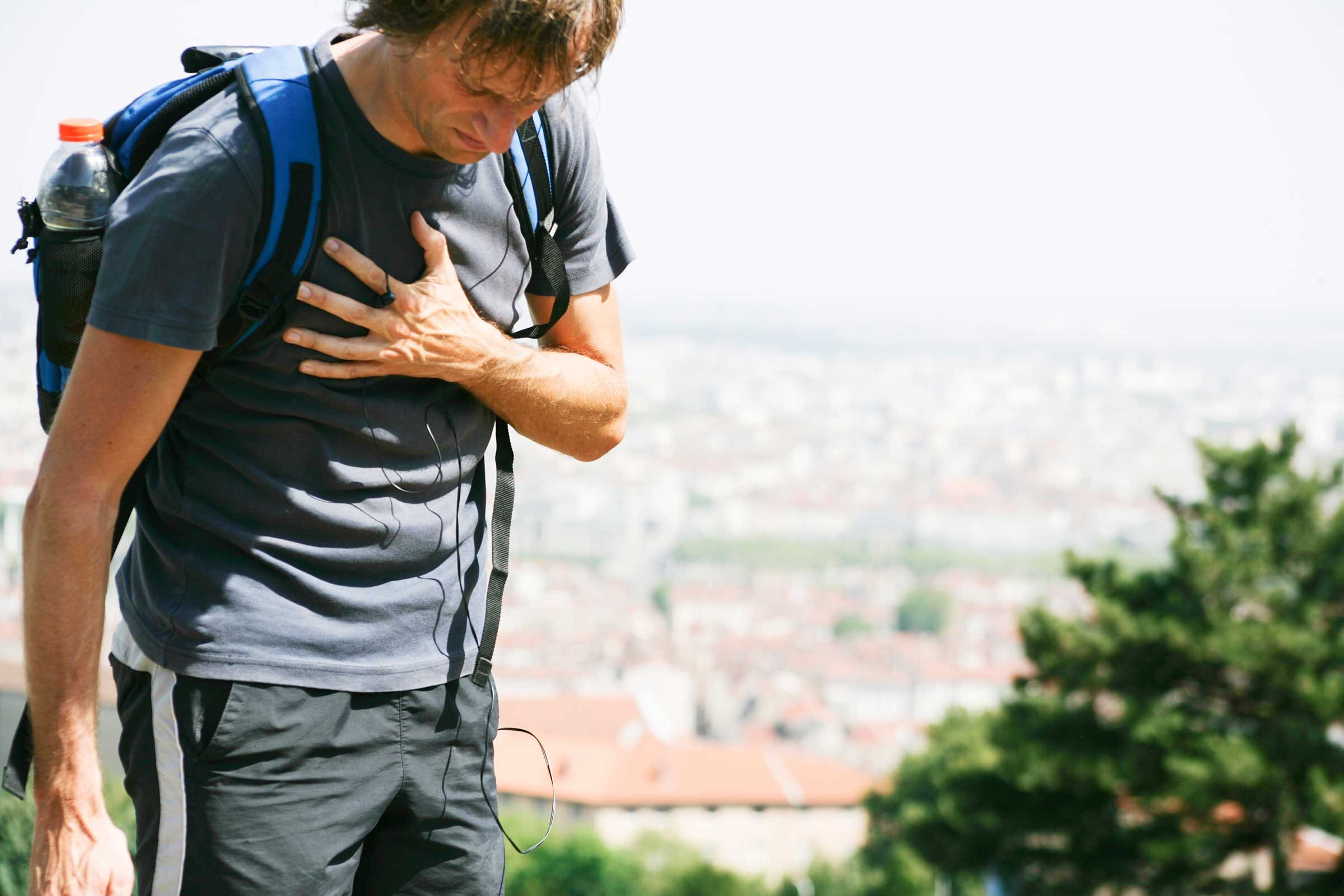
For a healthier heart, don’t ignore the 3 Ds: delay, denial, and death
An artery that is only 50 percent blocked can become fully blocked in a matter of hours, leading to a life-threatening heart attack, says Michigan-based cardiologist Joel Kahn, MD. “I tell my patients to never ignore chest pressure, shortness of breath, or sudden fatigue. These may be symptoms of a forthcoming heart attack.” If you’re concerned, get checked ASAP, and make sure you’re doing these other 30 things that reduce your risk of heart disease and stroke.

Beat a bad mood—with your garbage can
When students were asked to write negative thoughts about their body and then toss the paper in a garbage can, they were later more positive about their body image than those who hadn’t discarded those papers, according to Ohio State University research published in the journal Psychological Science in 2012. Further, when the study’s participants tucked positive thoughts about a healthy diet into their pocket, they were more likely to want to follow that diet later than those who threw such thoughts away. How you treat your thoughts affects behavior, which is why you should try these 23 easy mood-boosters you’ll want to make a habit.

Walk to work
Workers who hoof it to the office are 40 percent less likely to have diabetes, 20 percent less likely to be overweight, and 17 percent less likely to have high blood pressure than those who drive, according to a study of 20,000 U.K. residents published in the American Journal of Preventive Medicine in 2013. Taking public transportation or cycling was also associated with better health. This and other studies suggest it’s not always necessary to go to the gym to reap the health benefits of physical activity.

Wash your hands before you cook
Many instances of foodborne illnesses are due to improper food handling at home. According to a 2018 study from the USDA, people don’t wash their hands properly a whopping 97 percent of the time. Among the biggest mistakes? Not washing for the recommended 20 seconds and inadvertently spreading bacteria from raw food like poultry to other things in the kitchen, such as refrigerator handles and spice containers. This issue shouldn’t be taken lightly: The CDC estimates that foodborne illnesses sicken around 48 million Americans each year, a staggering number that includes 128,000 hospitalizations and 3,000 deaths. Check out these other bad things that can happen if you don’t wash your hands.

Trouble sleeping? Maybe you should invite your pooch to bed
Sleeping with your dog can be comforting, but is it a good idea? Maybe. Researchers found that having a dog in the bedroom doesn’t necessarily hurt sleep quality, although snoozing with too many pets could increase how many times people wake up in the night, according to a study published in Mayo Clinic Proceedings in 2015. The dogs’ position on or off the bed, however, makes a difference. Experiment with your pup to find what works for you.
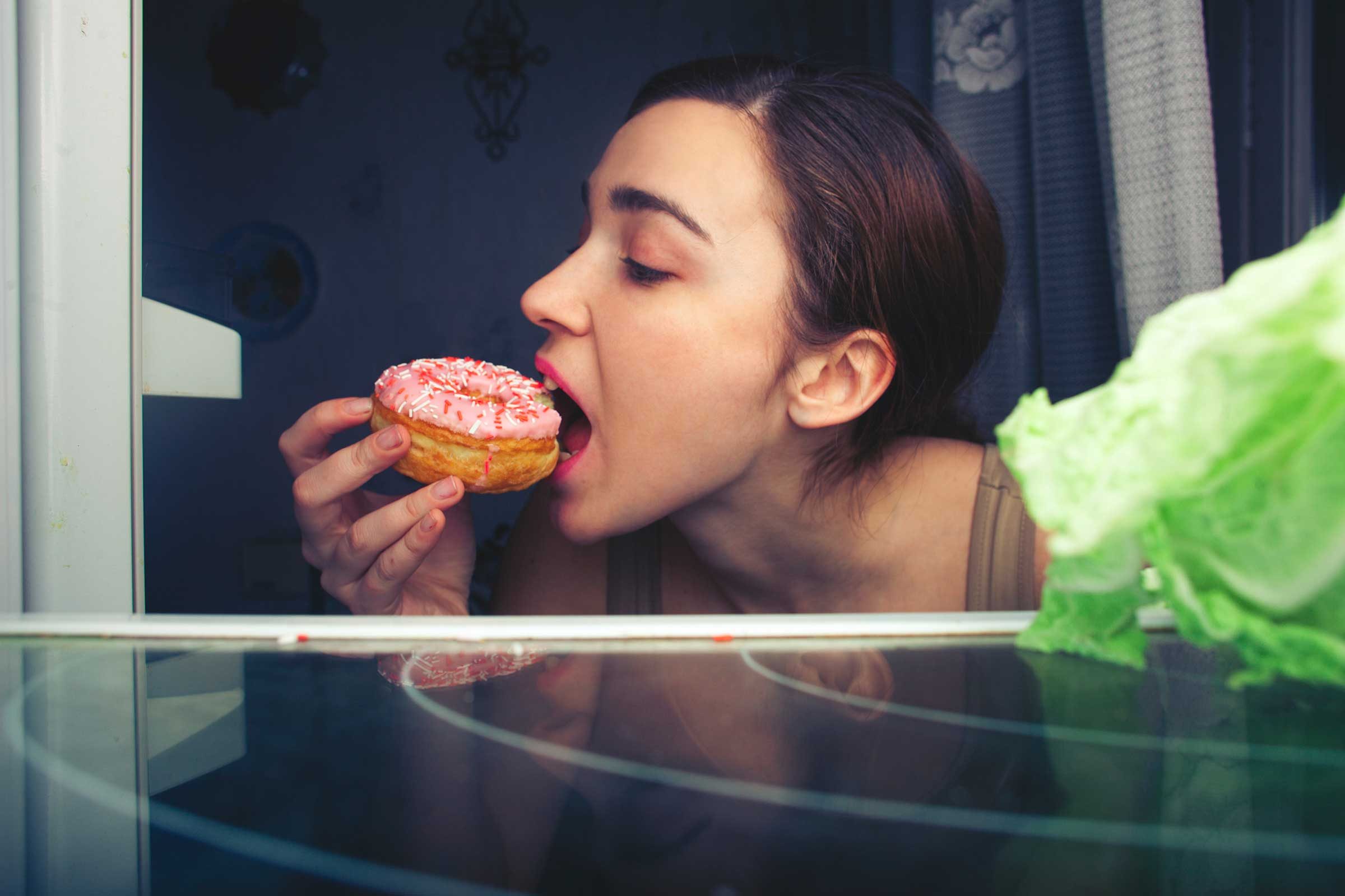
“Close” your kitchen after 7 p.m.
Your body needs a nighttime break from eating to repair metabolic functions, says Dr. Kahn. Skipping this fast—say, with a midnight snack—can cause a rise in inflammation, blood sugar, blood fats, and cell aging. So put a mental “closed” sign on your kitchen after dinner, ideally around 7 p.m. Check out these other ways to improve your eating habits in just one day.
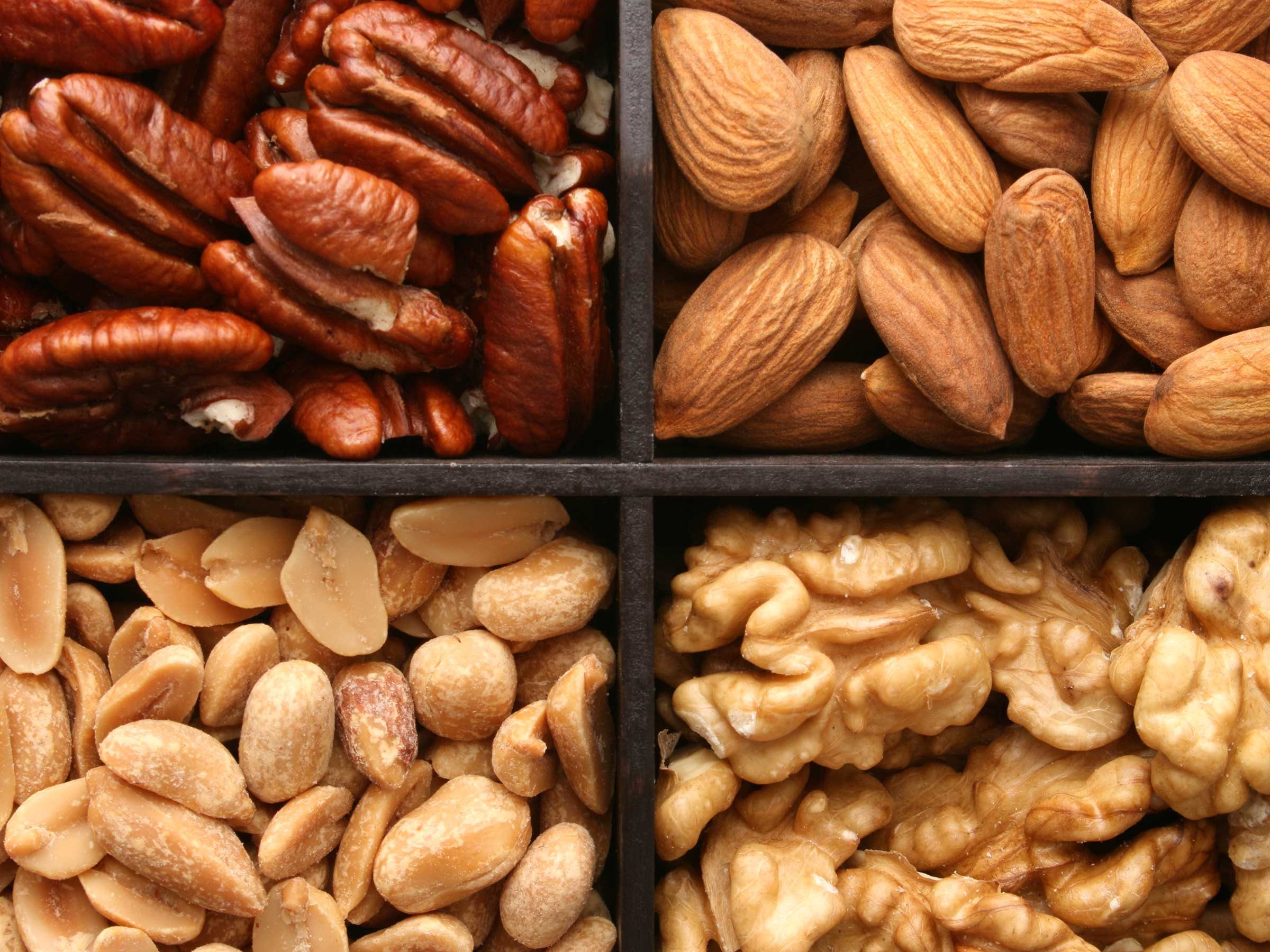
Make nuts your go-to snack
People who ate one ounce of nuts a day (that’s about 25 almonds or 50 pistachios) were less likely to die over a 30-year period than people who didn’t eat them at all, found a large study published in the New England Journal of Medicine published in 2013. Study authors believe that the high levels of healthy unsaturated fats in nuts may lower cholesterol and inflammation, reducing the risk of heart disease, cancer, and more. Meanwhile, you should avoid these everyday eating habits that are horrible for your cholesterol.
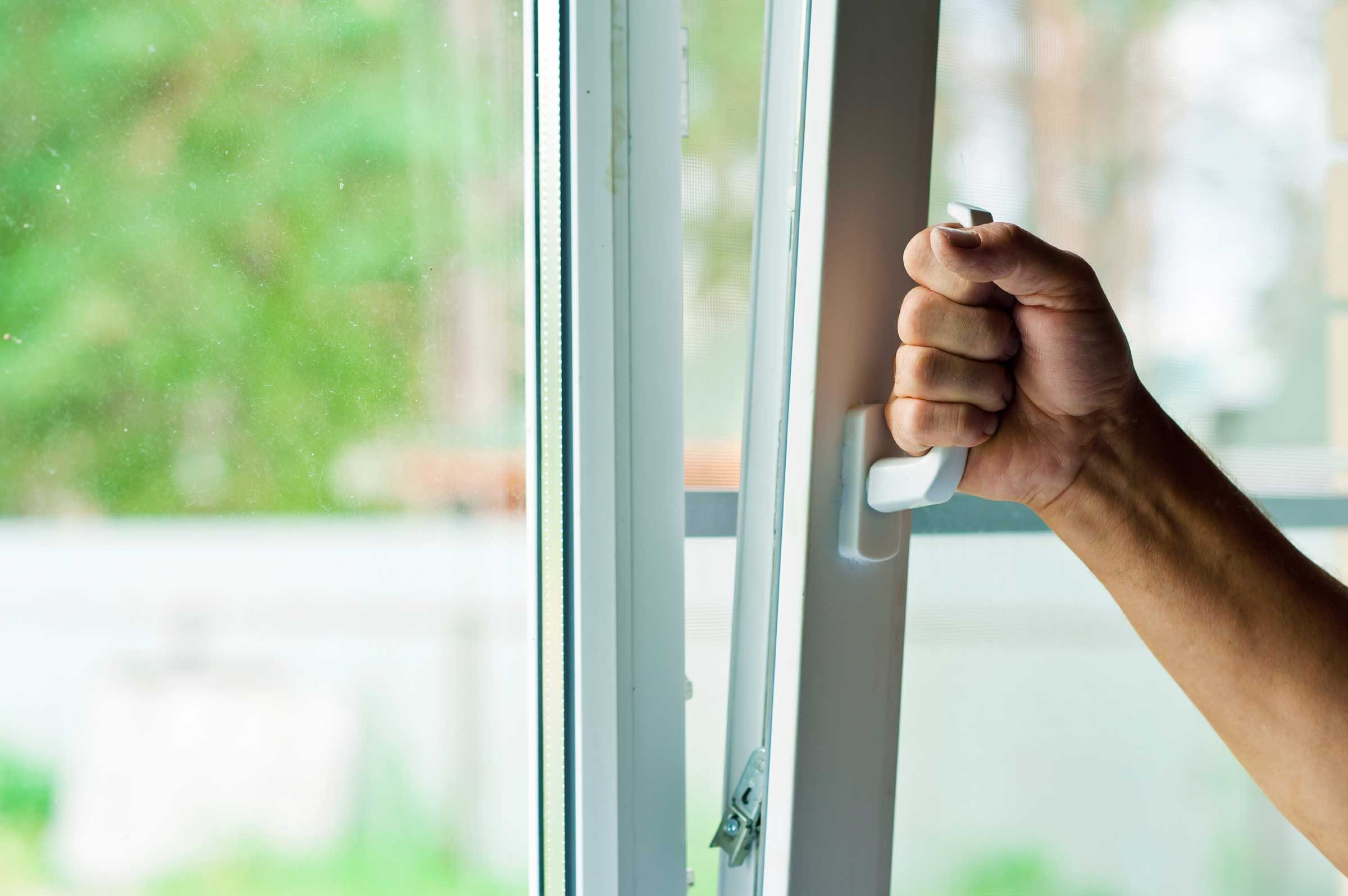
Open your windows
The air inside your home might be even more polluted than the air in the world’s dirtiest cities, says Dr. Kahn. There are dozens of possible sources, including hairspray, candles, and fumes from the nonstick coating on your cookware. While any might be harmless in small amounts, the caustic brew they create when mixed together can turn up inflammation, raise blood pressure, and harden arteries. Open windows on milder days, and use a fan to circulate the air to reduce indoor air-pollution levels.

Stick to wrapped candy
Peeling off the wrapper off your candy requires effort and may increase your awareness of how much you’re eating, according to research published in Advances in Nutrition in 2015. That’s not only potentially good for your waistline but also for your overall health. Here’s how eating too much sugar is making you sick.

Upgrade your sunscreen to SPF 50
Still think that SPF 15 is totally fine? SPF 50 offers significantly better sun protection, especially over time. Sunscreen with SPF 15 allows 7 percent of UVB rays to be transmitted to your skin, while one with SPF 50 permits only 2 percent of rays to pass through, says Steven Wang, MD, director of dermatologic surgery and dermatology for Memorial Sloan Kettering Cancer Center in Basking Ridge, New Jersey. This means that SPF 15 sunscreen allows more than three times as many UVB rays as SPF 50, which makes a big difference when you consider cumulative exposure over months, years, and decades.

Fake a good night’s sleep
Believing you slept well—even if you didn’t—may improve cognitive function the next day, according to study published in the Journal of Experimental Psychology in 2014. Researchers asked 164 participants how they’d slept the previous night, then hooked them up to a sham machine that purportedly revealed their REM sleep to scientists. People who were told they had above-average REM sleep performed better on cognitive and attention tasks than those who were told their REM sleep was below average, regardless of how they’d actually slept. So if you’re tired, try not to dwell on it, because that could make you feel even more exhausted. Don’t miss these little changes that can help you sleep better in just one day.
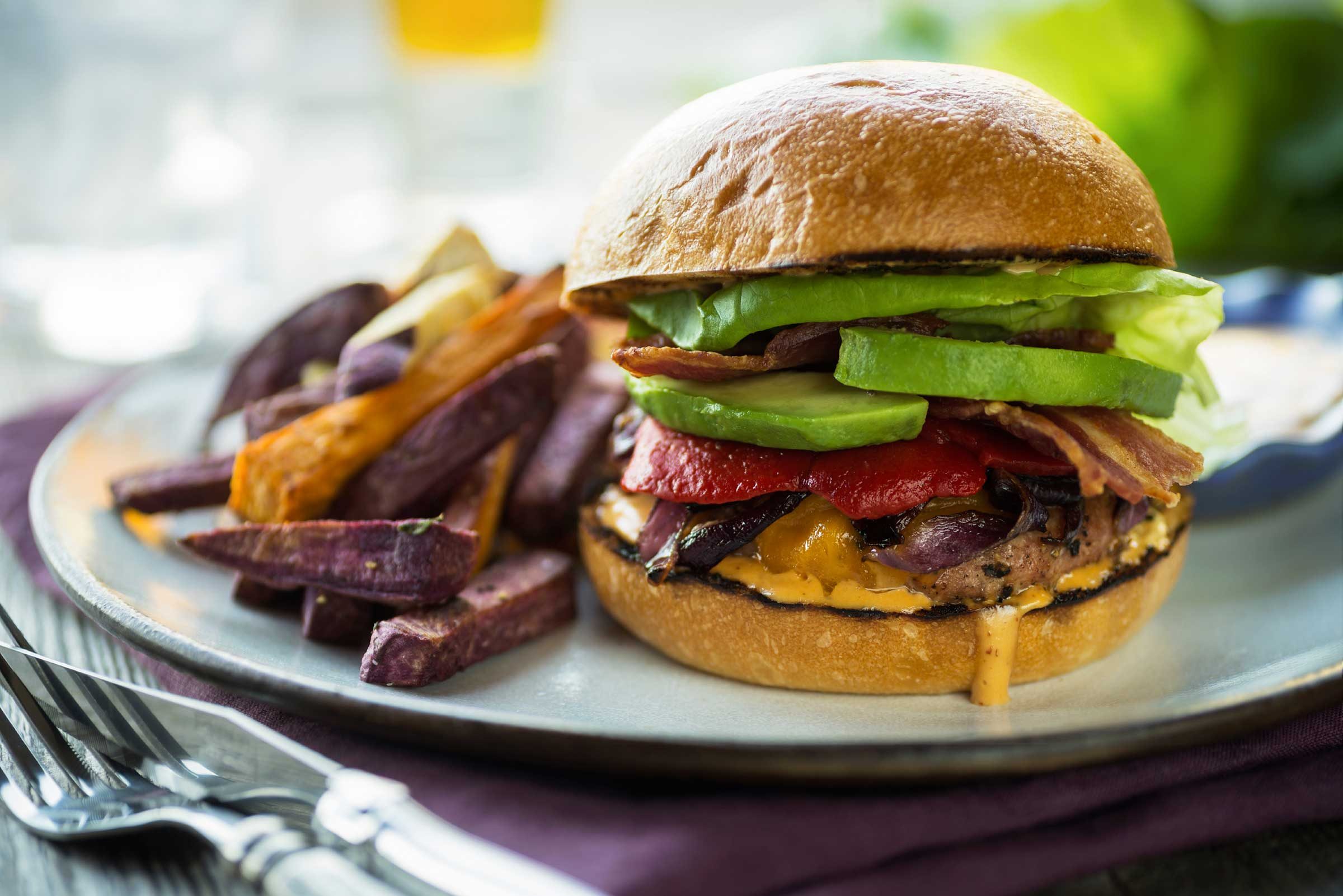
Top your burger with avocado
After people ate hamburgers, UCLA researchers documented a harmful reaction in their arteries within two hours. When the people topped the burgers with a slice of avocado, however, the harm nearly disappeared, according to a study published in Food & Function in 2013. Why? Nutrient-packed produce (even an avocado, with its high fat content) seems to neutralize the inflammatory effects of meat. Check out these other tricks to make your guilty pleasure foods healthier.

Vent about your stress—to someone who’s also anxious
Unleashing your worries can make you feel better—but only if it’s to someone who feels just as anxious, according to a study published in Social Psychological and Personality Science in 2014. Researchers from the University of Southern California tasked 52 women with giving a videotaped speech. Before speaking, the participants were paired up and urged to express their feelings. Researchers assessed the women’s emotional states and measured levels of the stress hormone cortisol before, during, and after the speeches. When each woman in the pair had similar emotions, discussing their feelings made both less stressed. But when one felt nervous and the other felt calm, communicating did not minimize the worriers’ anxiety.
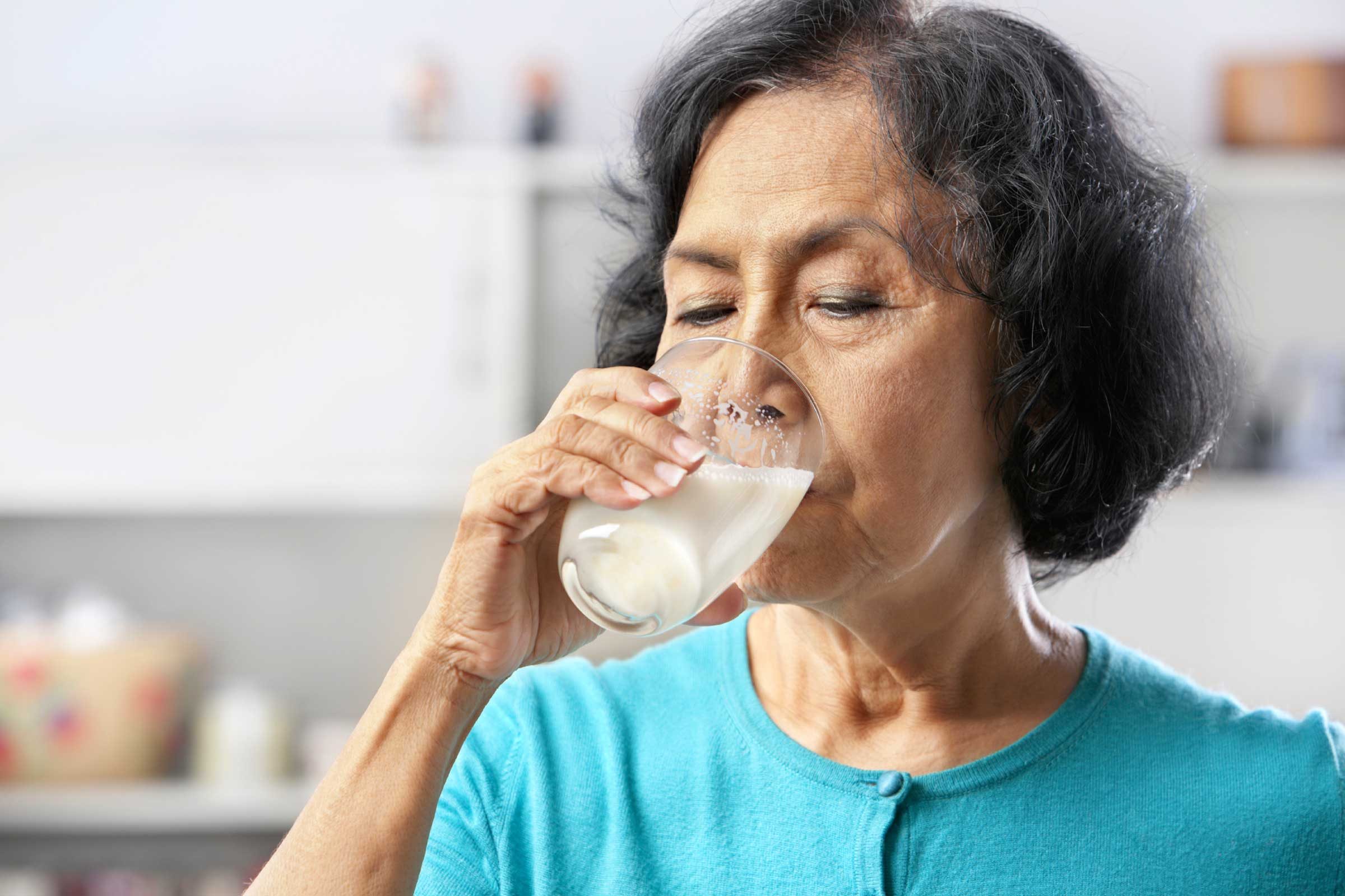
Make milk one of your daily drinks
Your knees may thank you one day. Low-fat or fat-free milk may help slow the progression of arthritis in the knee, found a Brigham and Women’s Hospital study published in Arthritis Care & Research in 2014. Researchers asked 1,260 women with arthritis in at least one knee about their food intake and assessed the women’s knee health for up to four years. The more milk the women drank (from less than one glass a week to seven or more), the more slowly their arthritis progressed. Cheese intake seemed to worsen the disease, possibly because its saturated fat may trigger inflammation. You should also be aware of these other foods can worsen arthritis symptoms.

Getting a flu vaccine? Work out beforehand
Flu vaccines are the best way to prevent the virus, but they’re only 40 to 60 percent effective, per the CDC. But exercise can make the flu vaccine (as well as other vaccines) more effective, especially in older adults, according to an article published in Human Vaccines & Immunotherapeutics in 2013. Though more research is needed, the combo of exercise and a vaccine seems to increase immune response and create a bodily environment of “improved readiness” that makes the vaccine work better.

Public potty? Don’t squat
Not fully emptying your bladder can lead to a urinary tract infection (UTI), per the Urology Care Foundation. When you hover above the toilet, you contract your pelvic muscles, and that may cause your bladder to retain some urine, allowing bacteria to grow and subsequently causing a UTI. If you’re really freaked about germs on a public toilet seat, cover it with toilet paper instead of squatting over it. Here are other surprising ways you’ve been using the toilet wrong.
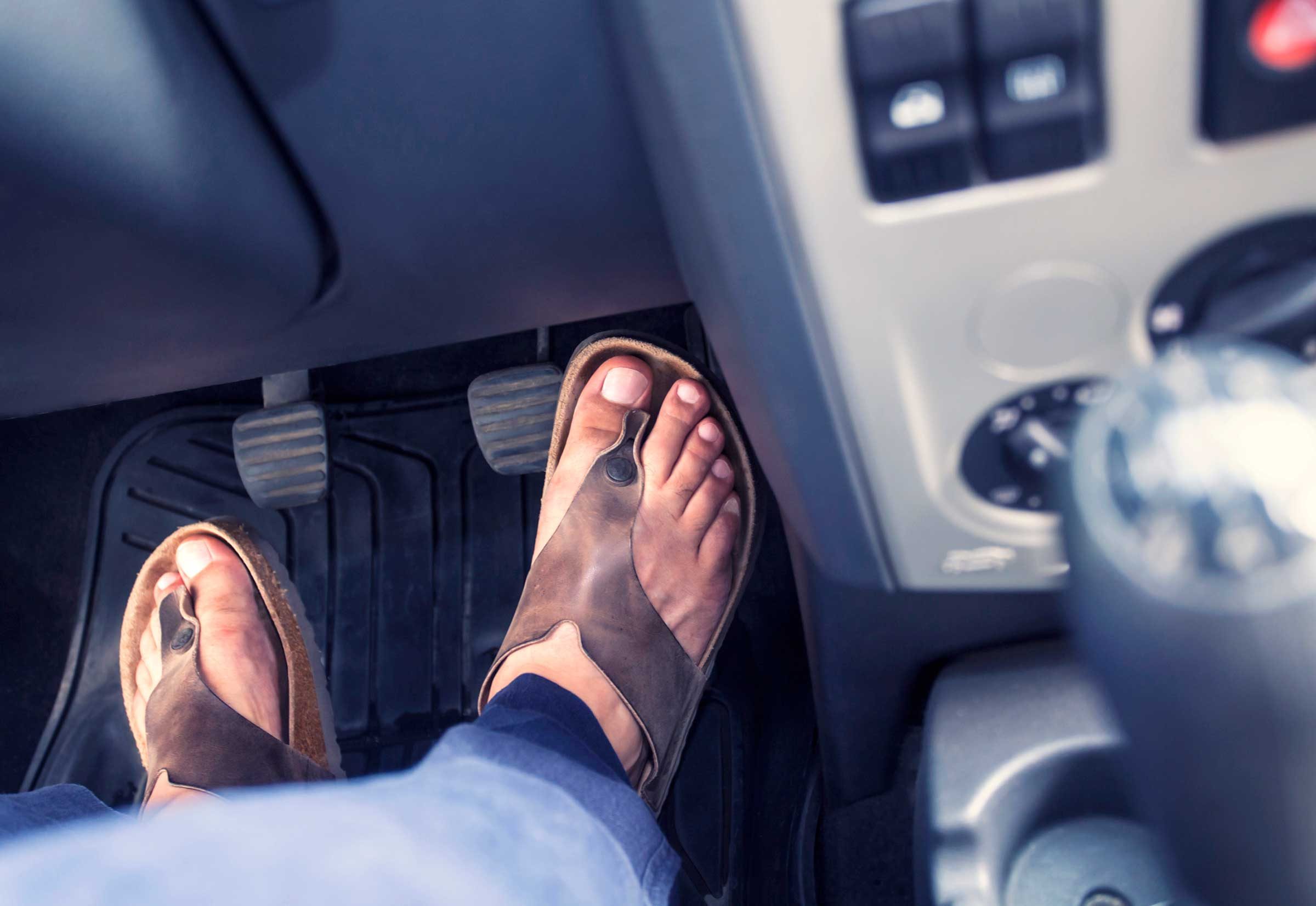
Stop driving in flip-flops
These sandals can slip off and either get stuck under the brake and gas pedals or depress both pedals at the same time, says former police officer and certified traffic safety and crash expert John Langan. “Driving is the most dangerous activity the average person will do in his lifetime,” he says. “Why would anyone want to make it even more dangerous by wearing the wrong shoes?” The next time you must get behind the wheel wearing flip-flops, just slip them off and set them on the seat next to you. “Driving barefoot is better than wearing flip-flops,” says William Van Tassel, PhD, manager of driver-training programs at AAA’s national office. Here are more scary reasons you should stop wearing flip-flops, even when you’re not behind the wheel.
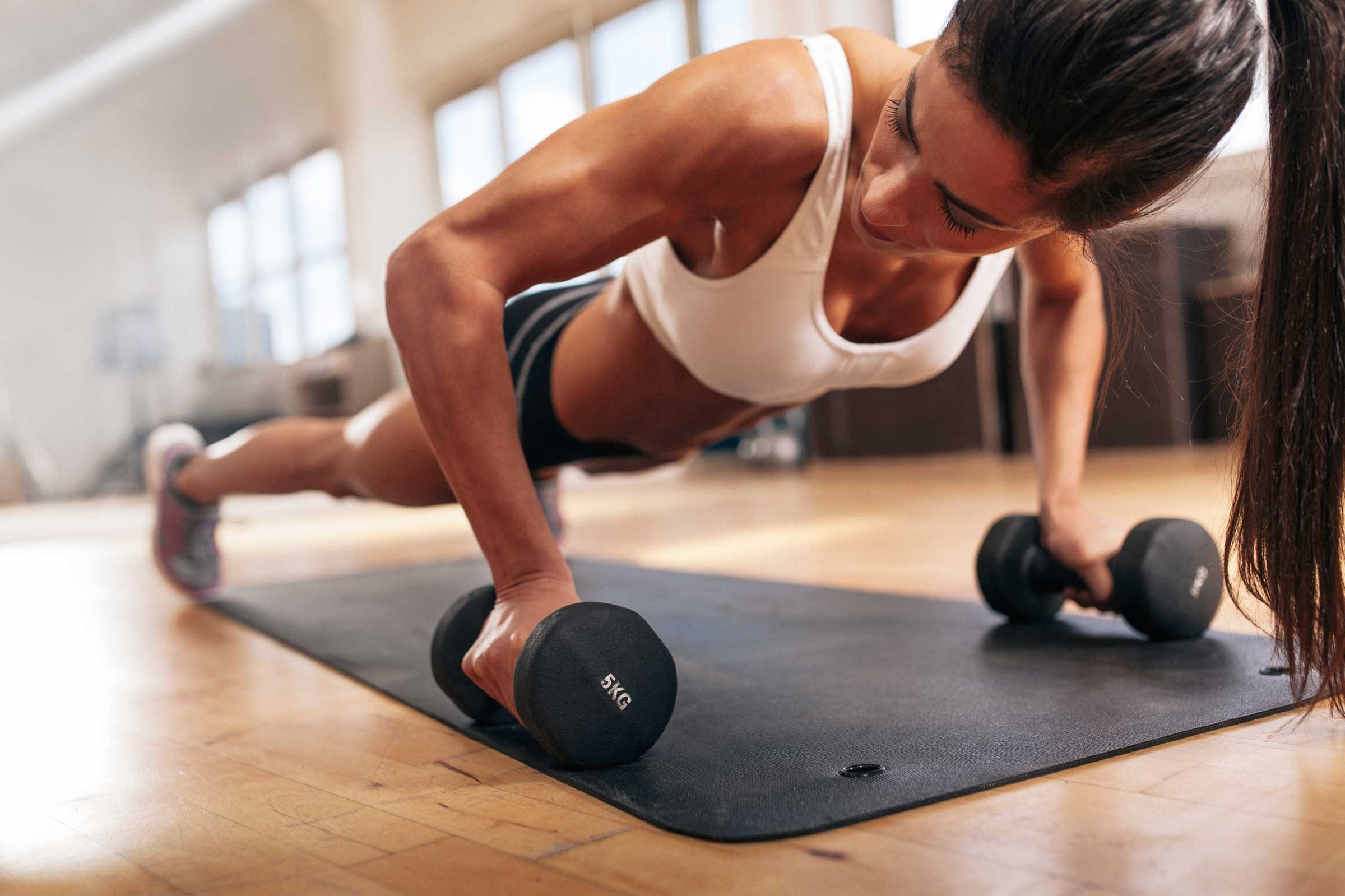
Don’t treat exercise like a chore
How you think about exercise might make a big difference in how much weight you lose. In one study published in Marketing Letters in 2015, participants walked the same one-mile course, but half were told it was exercise, while the rest thought it was purely for the pleasure of listening to music. Afterward, the “exercisers” were more tired and grumpy and scarfed down more sugary treats at a lunch buffet. The lesson: If you focus on the fun in your physical activity, you may feel happier and want to snack less later.
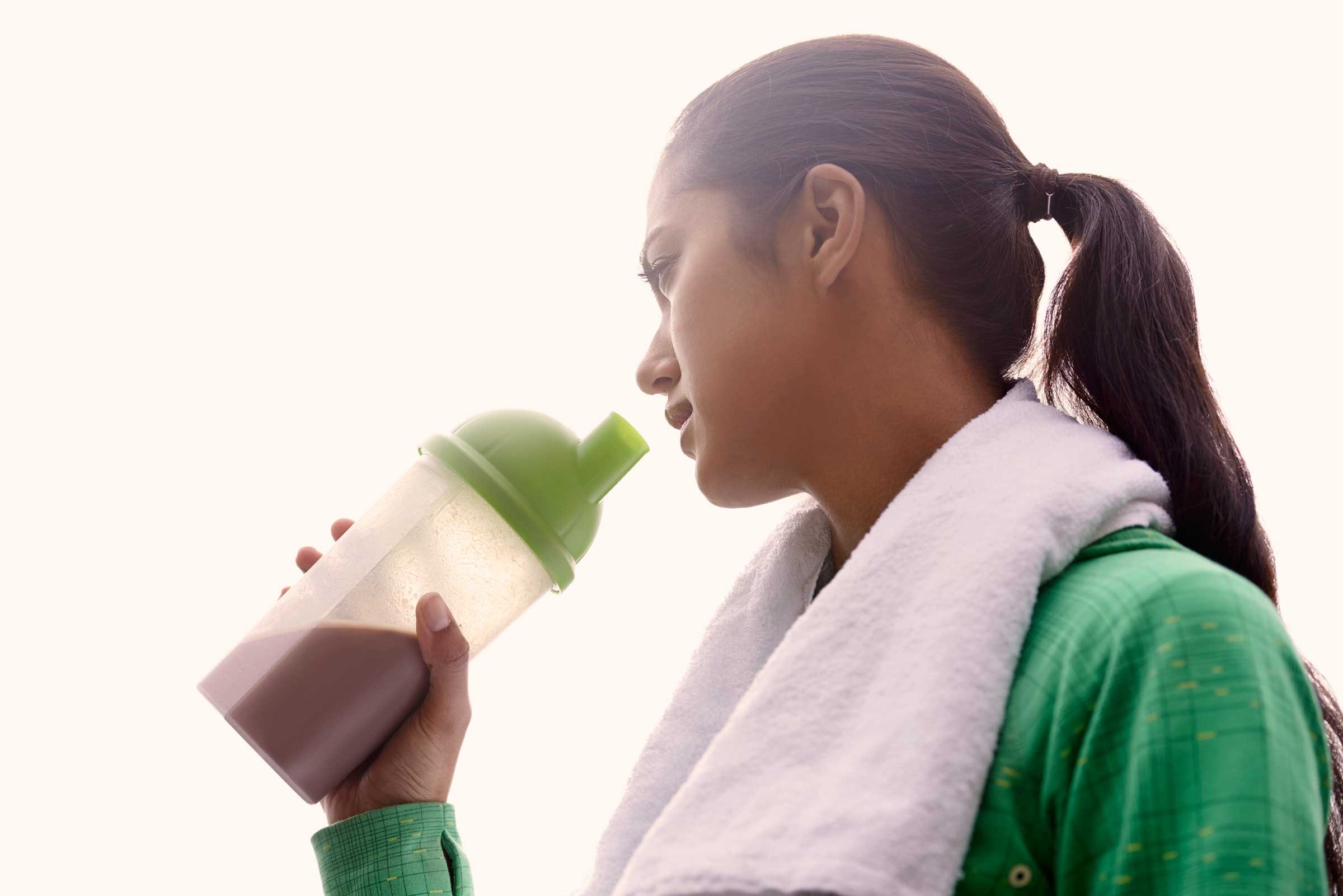
Sneak in an exercise “quickie” before you eat
The best pre-meal appetizer: ultra-short bursts of activity. One New Zealand study, published in Diabetologia in 2014, found that overweight people who did just six 60-second bursts of intense activity before a meal (such as walking quickly up a steep hill) saw a 13 percent greater drop in blood sugar after they ate than those who did a moderate-intensity workout for a half hour. The effect lasted for up to 24 hours afterward and can protect against diabetes, just like these other easy diabetes-fighting habits.
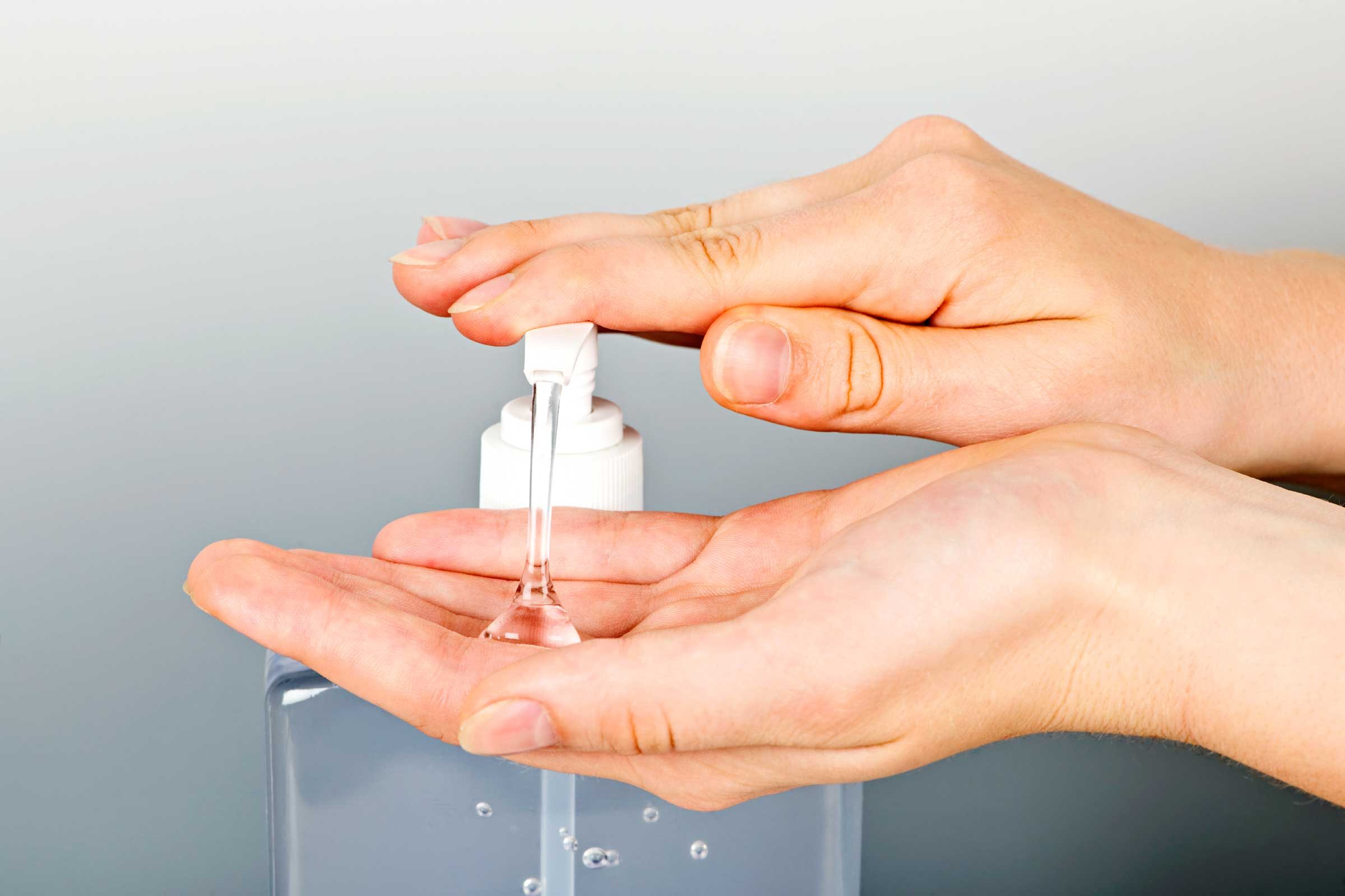
Traveling somewhere exotic? Pack hand sanitizer
Travelers in developing or tropical areas often encounter diarrhea, but clean hands can protect you. In a survey of 200 international travelers, approximately 30 percent who didn’t use hand sanitizer fell sick during travel, compared with only 17 percent of those who used a germ-killing gel, according to research published in Travel Medicine and Infectious Disease in 2014. Sanitizing before meals can help you avoid bacteria like E. coli, a common cause of diarrhea.

Eat a bigger breakfast
People with type 2 diabetes who ate a large, nutritious, high-energy breakfast for three months, along with an average lunch and small dinner, had significantly lower glucose levels than those who ate six smaller meals per day, according to a small Israeli study presented at ENDO 2018, the annual meeting of the Endocrine Society. Those who ate a larger breakfast also reported better weight loss, less hunger, and a decreased need for insulin. This suggests that when and how frequently you eat may be just as important as what you eat. Don’t miss these other “healthy” breakfast mistakes you might be making.
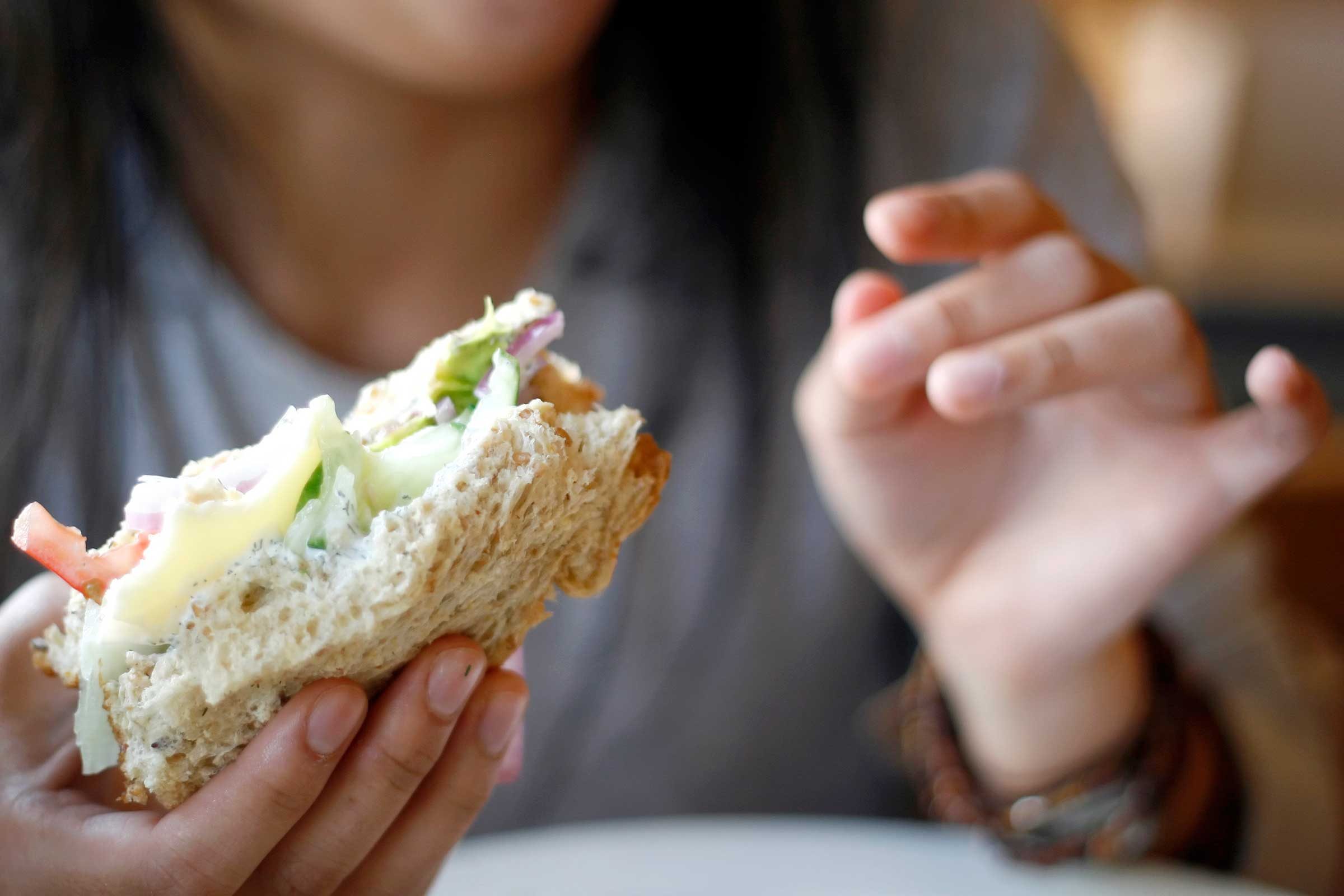
Skip that sandwich
You may want to reconsider your daily midday-meal selection. Sandwiches contribute about 30 percent of the daily sodium limit of 2,300 milligrams recommended for most Americans, according to a study published in the Journal of the Academy of Nutrition and Dietetics in 2015. For those ages 50 and older, they contribute nearly 50 percent. In the study, sandwich eaters also consumed an average of 300 more calories and 600 more milligrams of sodium than those who munched on other fare.

Keep roses near your bed
Prone to nightmares? Place a potted rosebush or a rose bouquet near your bed. In a small 2008 German study, women who slept in a rose-scented room reported experiencing pleasant dreams, while those exposed to a rotten-egg smell were more likely to have negative ones. While that study consisted of only 15 participants, they are definitely onto something: According to a review of 13 studies and 772 participants published in the Avicenna Journal of Phytomedicine in 2017, rose oil has been found to improve depression symptoms, reduce pain, and help with general relaxation. Check out these other tips to sleep better, straight from sleep doctors.

Check e-mail (a little) less often
Here’s a simple way to feel less stressed: Sign out of your e-mail. For two weeks, Canadian researchers assigned more than 120 adults to either check their e-mail only three times a day or to check as often as possible (about the same number of times they normally would). After the first week, participants switched scenarios. For most people, checking their inboxes less frequently significantly lowered overall daily stress levels.

Got dry eyes? Take a deep breath
Japanese researchers asked 20 women to breathe either normally or abdominally (inhaling for four seconds and exhaling for six) for three minutes, according to a study published in the journal Ocular Surface in 2015. Tear volume remained constant after normal breathing but increased by 48 percent within 15 minutes of the deep-breathing session. Deep breathing may restore balance to the part of the nervous system that is linked to tear production. Here are the silent signs you could have dry eye syndrome.
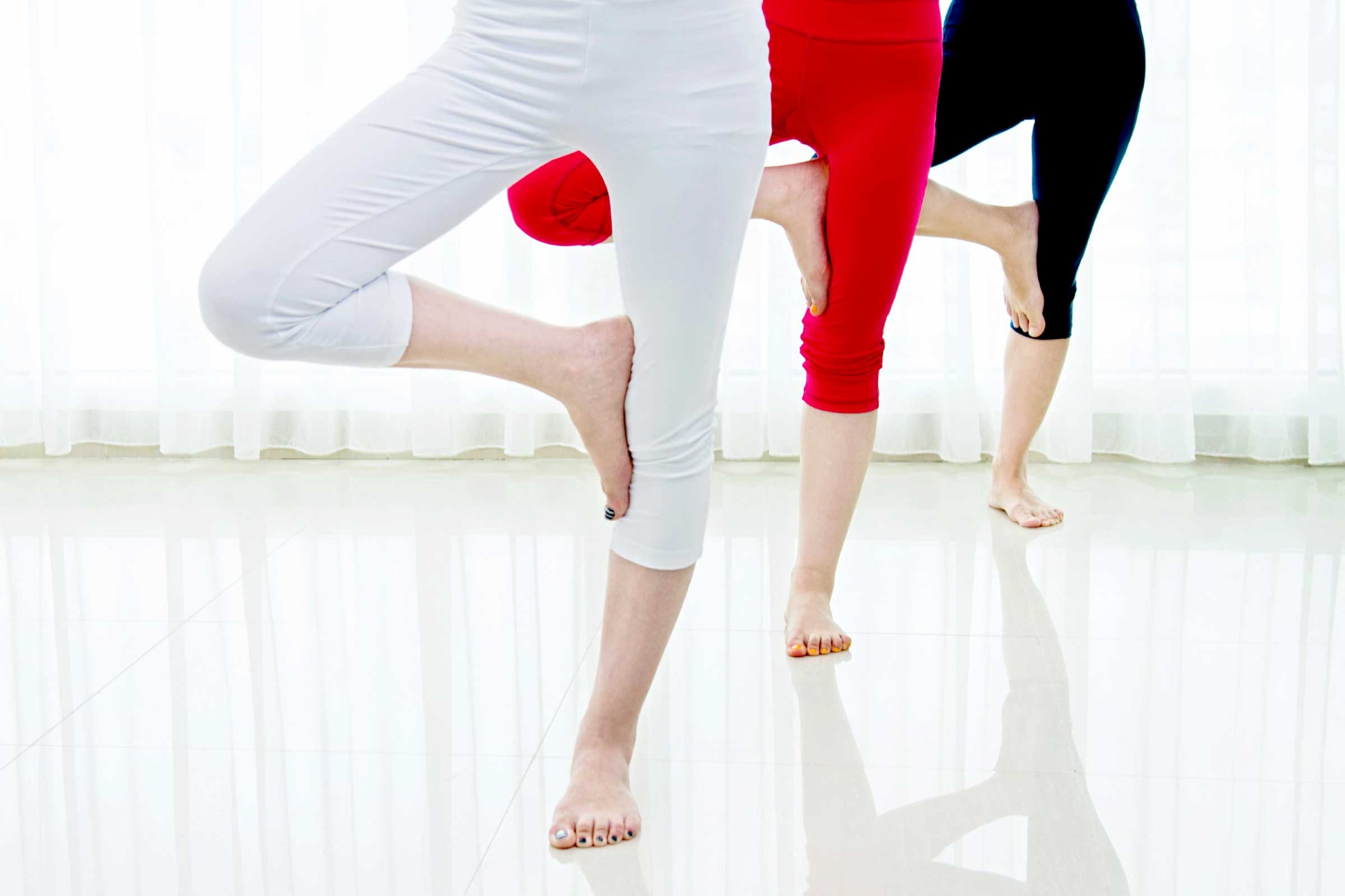
Test your brain health—in 20 seconds
Can you balance on one leg for at least 20 seconds? Japanese researchers asked more than 1,000 participants (average age: 67) to lift one leg for up to 60 seconds, then compared their performance with scans of their brains. The study, published in Stroke in 2014, found that those who couldn’t balance for more than 20 seconds were more likely to have cerebral small blood vessel disease (linked to stroke and dementia), even if they didn’t have classic symptoms.
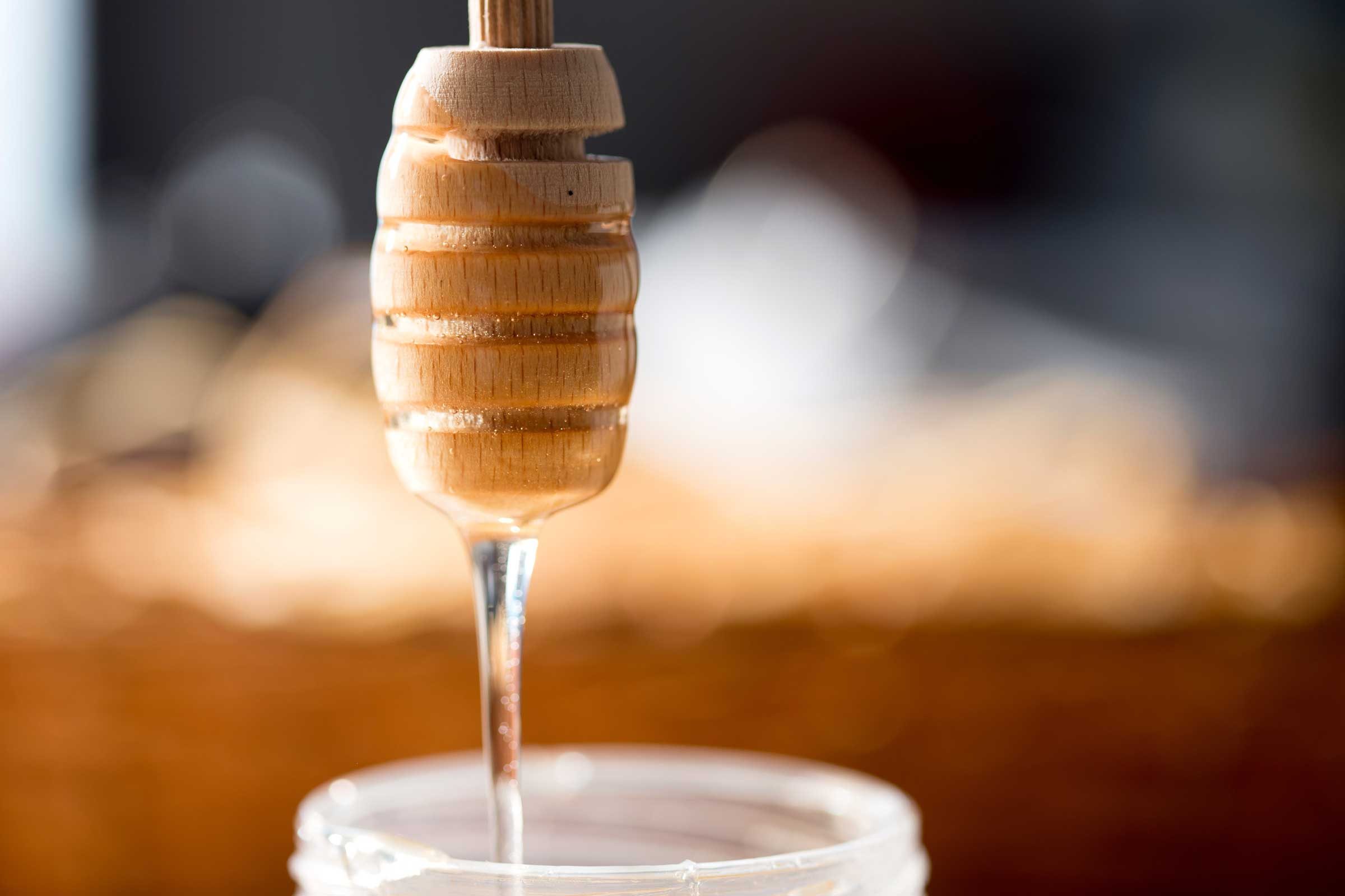
Use honey to cure a canker sore
In a Saudi Arabian study of 94 people, reported in the journal Quintessence International in 2014, those who dabbed honey on irritating canker sores had less pain and healed faster than those who used other treatments (such as a steroid cream and an over-the-counter paste that forms a protective barrier over the canker sore). After two days, the people who used honey said that their pain was completely gone; it took up to eight days for users of the other treatments to feel better. Researchers suspect that honey’s anti-inflammatory and antimicrobial properties help ease pain and promote wound healing. Here are some other home remedies for canker sores.

Ditch the iPad before bed
During a two-week study, published in Proceedings of the National Academy of Sciences of the United States of America in 2015, Brigham and Women’s Hospital researchers assigned 12 participants to read either an e-book on an iPad or a printed book before they went to sleep each evening for five nights. Then they switched formats and read for another five nights. When people read on the iPad, they took longer to fall asleep and spent less time in REM sleep than with the traditional books. Researchers say that using devices that emit blue light—including cell phones and laptops—before bedtime can disrupt circadian rhythms, suppress the sleep-promoting hormone melatonin, and have negative long-term health effects.

Eat this before you grocery shop
Spoiler alert (if you didn’t already guess from the picture): You should eat an apple, according to a study published in the journal Psychology & Marketing in 2015. At the start of a shopping trip, Cornell researchers randomly gave 120 people a sample of an apple, a cookie, or nothing. Those who received the apple bought 28 percent more fruits and vegetables than those who got a cookie and 25 percent more than those with no snack. Try these 10 other secrets to help you shop healthier at the grocery store.

Watch where you walk
Texting and driving is dangerous, but what about texting and walking? The National Safety Council reports that injuries from distracted walking are on the rise, and believe it or not, more than half occur at home. Of course, being distracted when you’re outside can also be a big problem. Pedestrian fatalities have increased 46 percent in the last decade, with 6,000 pedestrian deaths by motor vehicle in 2016 alone. So, put your phone down, keep your head up, and stay alert whenever you’re out and about.
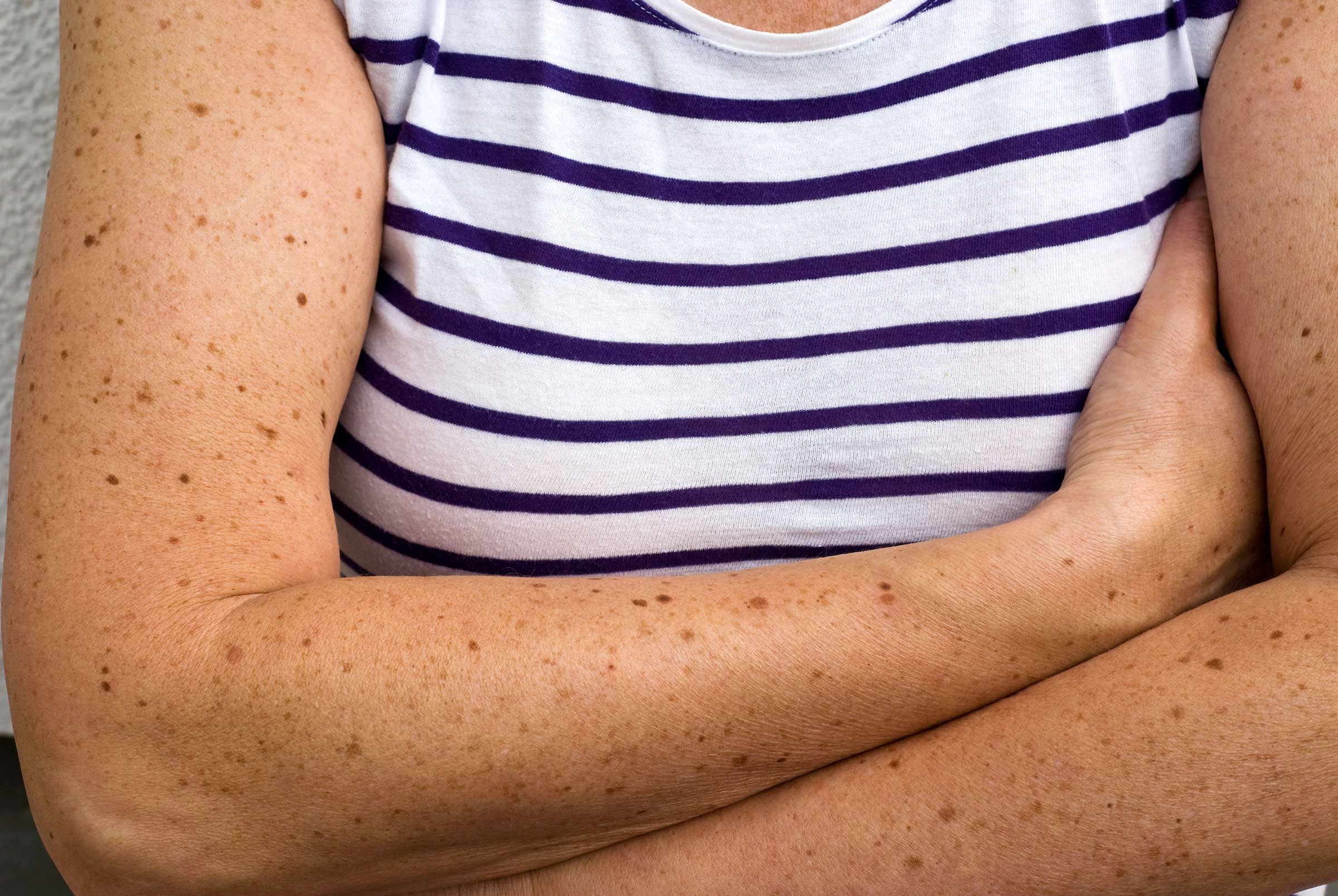
Look at your right arm
British researchers counted moles (an important predictor of skin-cancer risk) on nearly 3,600 female Caucasian twins. According to the study, published in the British Journal of Dermatology in 2015, those who had more than 11 moles on their right arm were likely to have more than 100 moles throughout their body, putting them at a significantly increased risk of developing skin cancer. Visit a doctor for a full checkup if you discover more than 11 moles on your arm or if any moles have changed color or shape in the past few months. Don’t miss these other skin-cancer symptoms you should check for now.

Write by hand
Stimulate your mind by putting pen to paper. While typing may be quicker, it is also somewhat mindless. Writing, on the other hand, lights up various sections of your brain and can make you retain and understand information better, according to a study published in Psychological Science in 2014. Another study, published in Frontiers in Psychology in 2017, found that you can reap even more brain benefits by additionally drawing shapes, arrows and symbols with your notes. The researchers found that this establishes more pathways in the brain and increases neural activity, resulting in better cognitive processing and learning. Make sure you also know these other everyday habits that keep your brain healthy.
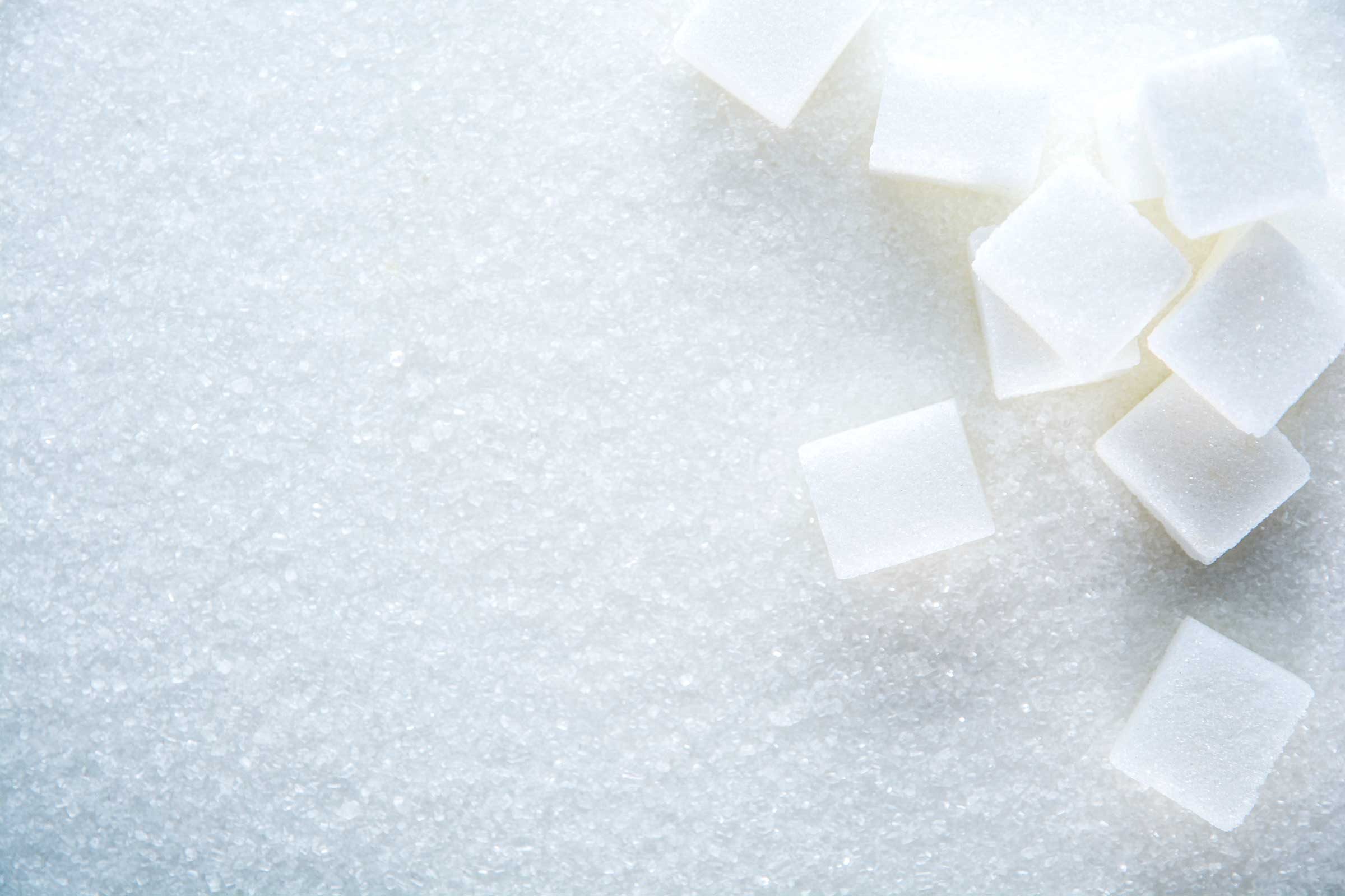
Count your sugar grams
Women shouldn’t eat more than 24 grams (or six teaspoons) of added sugar in 24 hours, while men should top out at 36 grams (9 teaspoons), according to the American Heart Association. One teaspoon/cube equals four grams. When you see sugar grams on a label, divide by four to get the number of teaspoons. A packet of oatmeal can have 12 grams of sugar—that’s three teaspoons, or half of what major health organizations recommend for the day. Yogurt can have more than 24 grams—your whole day’s allotment. “Sugar can be hidden in tons of foods, even salad dressing, so it’s a great practice to check labels and read ingredients,” says Miller.
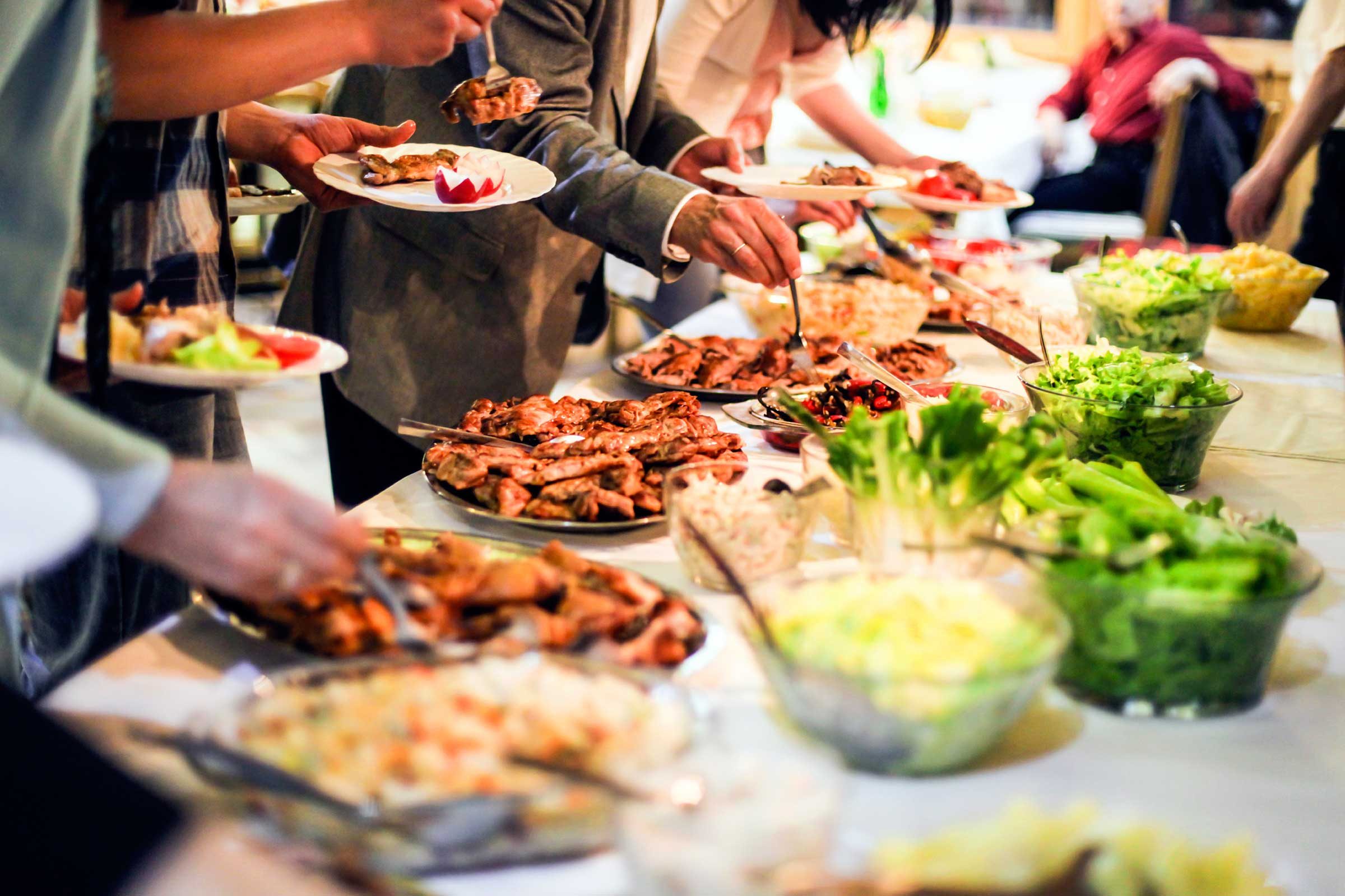
Scope out the buffet before you fill up your plate
According to a study published in the American Journal of Preventive Medicine in 2013, heavier diners were twice as likely to start picking out food at a buffet instead of perusing before choosing. Other research shows that it’s better to sit farther away and in a seat that doesn’t face the food. You should also always remember the rules of good eating, even when confronted with a dizzying array of options. “An ideal dinner plate will have at least half of its size filled with vegetables, a quarter of its plate filled with protein, and the last quarter filled with either healthy fats or grains,” says Miller. “It is best to eat slowly and to wait at least 15 minutes after your first plate before going for seconds.” Don’t miss these 15 things you should never, ever eat at a restaurant.